News

New study that includes contributions by Baylor planetary geophysicist Peter James, identifies previously unrecognized pattern of tectonic deformation on Venus.
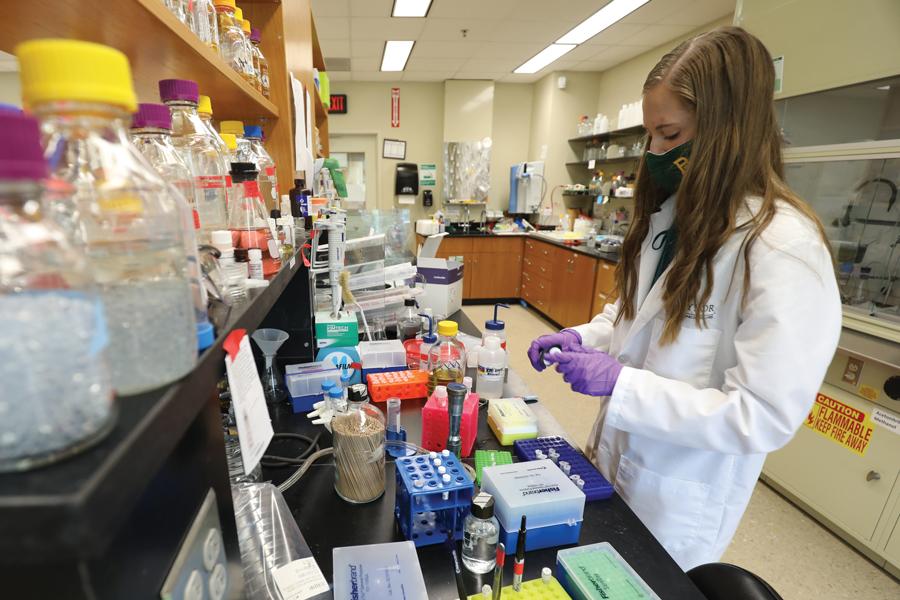
The Science Research Fellows (SRF) major in Baylor’s College of Arts & Sciences provides a quick start for students who have their sights focused on scientific research.

When an organization supports its employees who choose to adopt children, the employees, their families, the adopted children and the organization itself experience positive benefits and outcomes, according to new research from Baylor University.
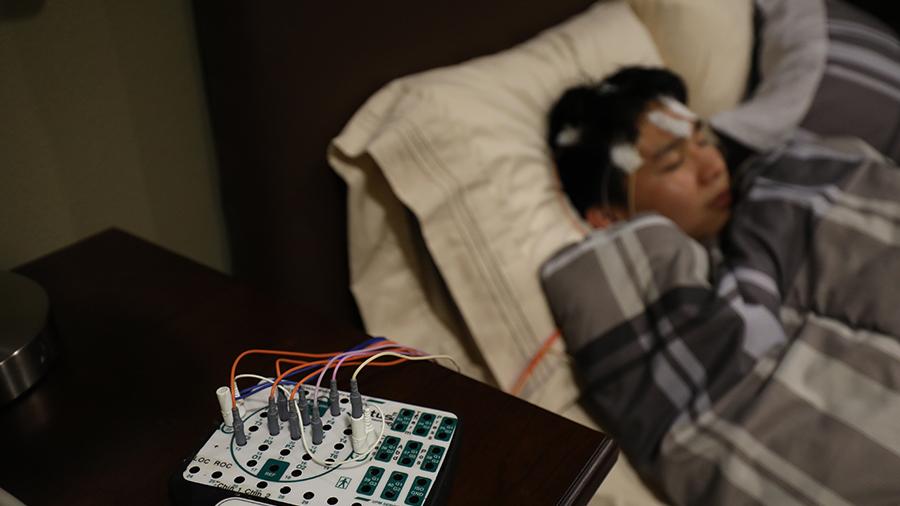
Baylor sleep researcher Michael Scullin finds “earworms” continue during sleep, can cause restless nights in study in Psychological Science.

Patterns in American religious attitudes, behaviors and beliefs just after the 2020 presidential election and during the coronavirus pandemic are the latest focus of the Baylor Religion Survey, the most comprehensive national survey studying religion in America.

Jameson Graber’s award, the first NSF CAREER award earned by a Baylor math faculty member, applies game theory and partial differential equations to high level societal questions.

SMPTE, NASA among organizations at introduction of compatible system that transcends traditional color range, enables digital screens to display “colors within the colors” naturally seen by the human eye.
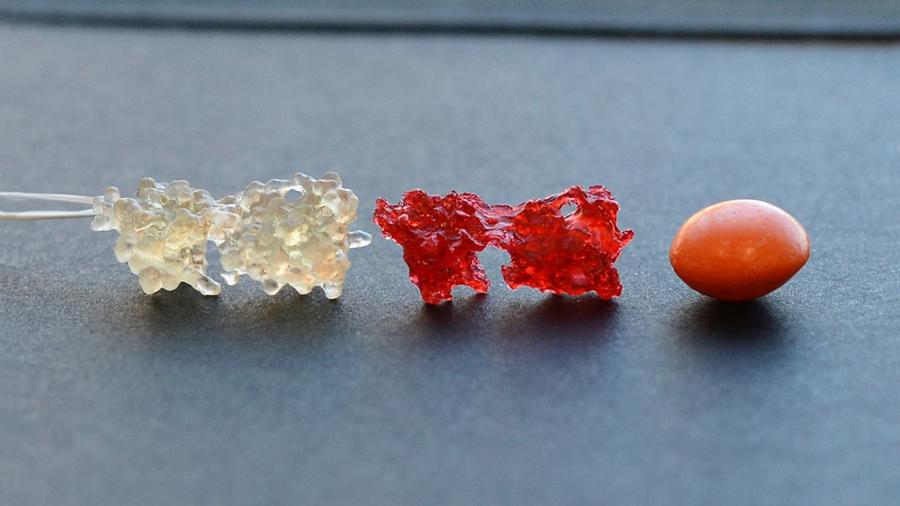
Baylor researchers, led by Bryan Shaw, found oral tactile visualization of complex 3D structures to be as accurate as eyesight in Science Advances - published study.
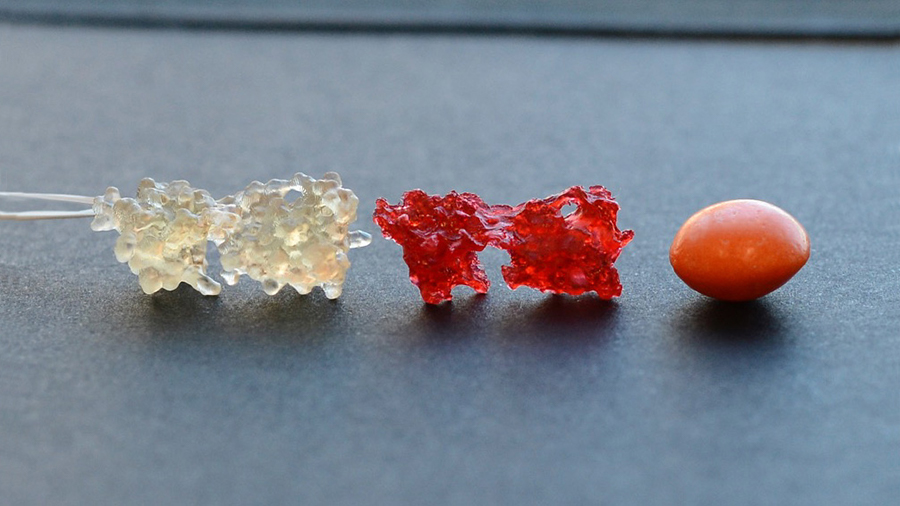
WACO, Texas (May 28, 2021) – About 36 million people have blindness including 1 million children. Additionally, 216 million people experience moderate to severe visual impairment. However, STEM (science, technology, engineering and math) education maintains a reliance on three-dimensional imagery for education. Most of this imagery is inaccessible to students with blindness. A breakthrough study by Bryan Shaw, Ph.D., professor of chemistry and biochemistry at Baylor University, aims to make science more accessible to people who are blind or visually impaired through small, candy-like models.
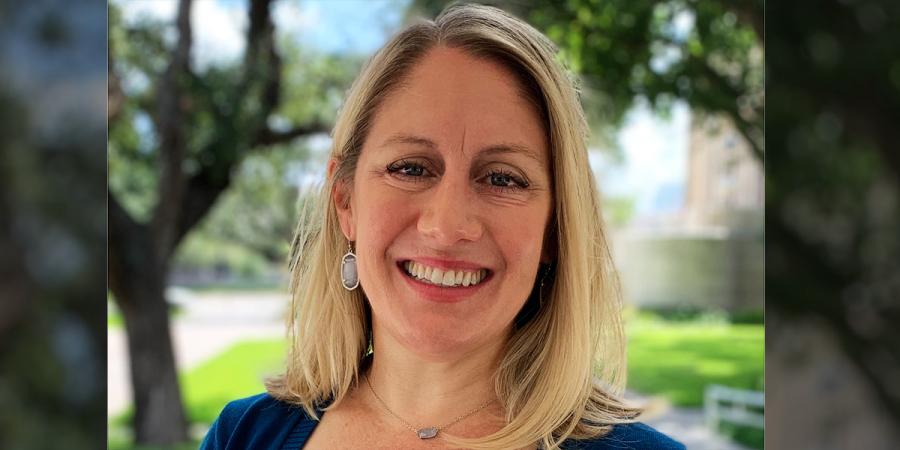
Danielle Parrish in Baylor's Diana R. Garland School of Social Work has been awarded a $3.1 million NIH grant to study the efficacy of risk reduction intervention efforts for young women age 14-17 in the juvenile justice system.

David Jack, Baylor professor of mechanical engineering, is working to arm the aerospace industry with resources to make it smarter and safer through non-destructive testing technology.
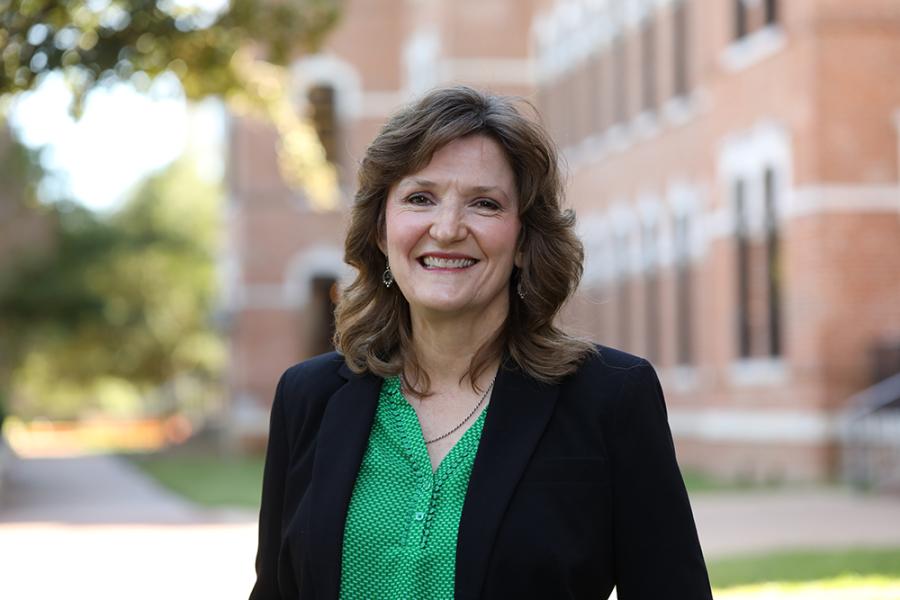
The research of Karol Hardin will help Spanish-speaking patients overcome obstacles to healthcare through a focus on effective communication and equity.
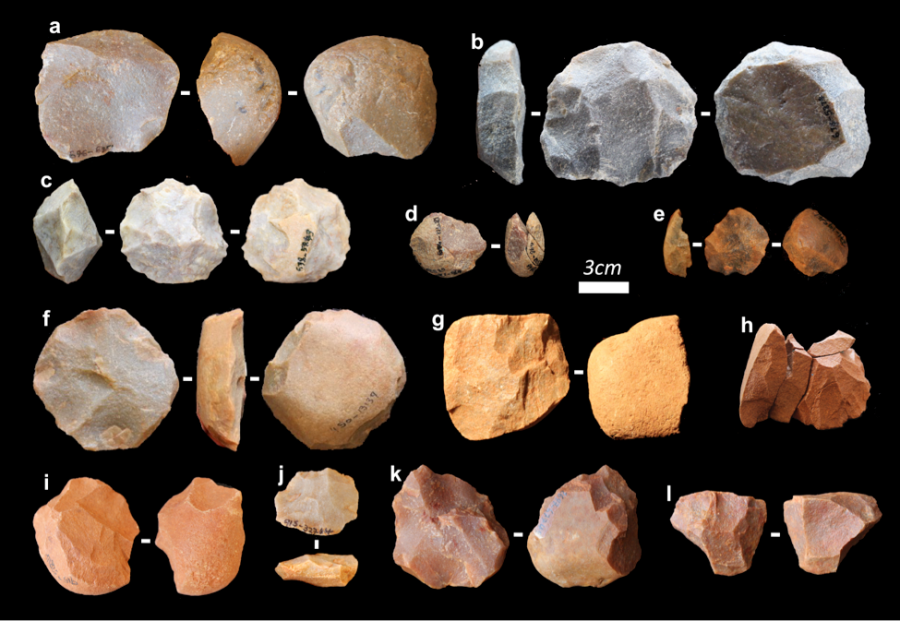
A Yale-led study, with contributions from a Baylor University paleoclimatologist, provides the earliest evidence to date of ancient humans significantly altering entire ecosystems with flames.

This year, Baylor launched a strategic partnership with My Labs Direct (MLD), a CLIA-certified, COLA-accredited diagnostic lab, in opening an on-site COVID-19 testing lab and research facility in the University's Baylor Research and Innovation Collaborative.
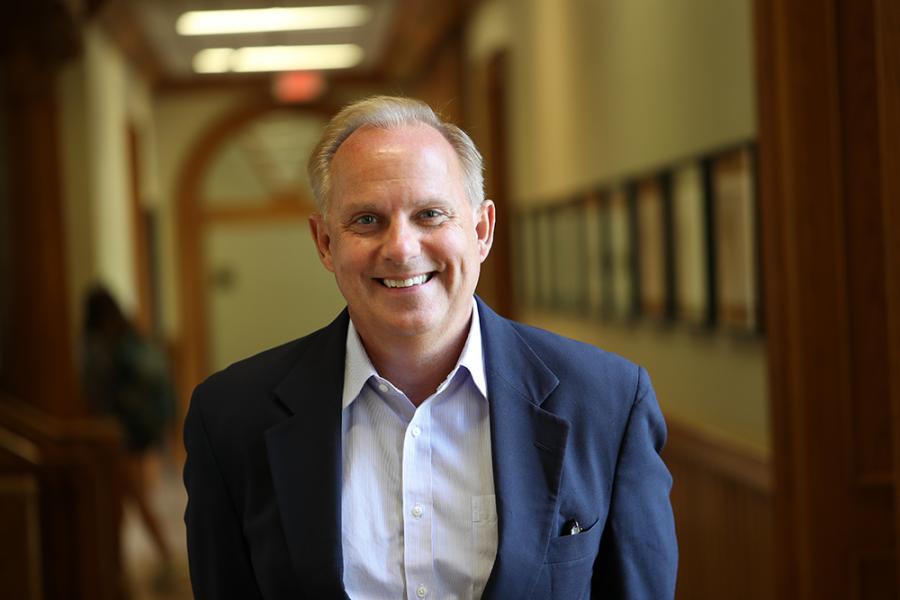
Movies, books, sermons, political speeches and other media Americans consume have played a pivotal role in shaping racial attitudes and opinions. English professor Greg Garrett has earned a $488,000 grant by the Eula Mae and John Baugh Foundation to study those dynamics.
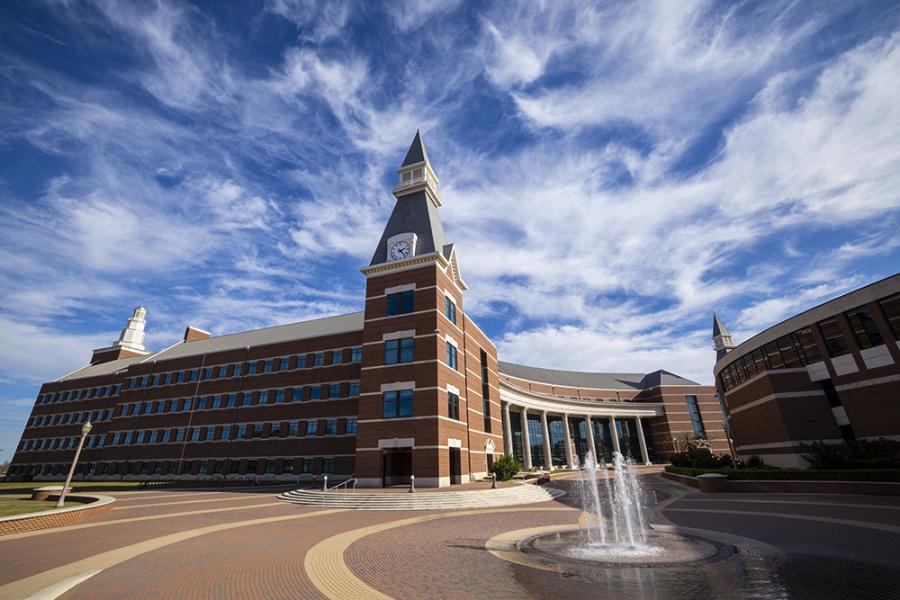
Five newly endowed positions, funded through the Baylor Academic Challenge, will provide strategic growth to Baylor academic programs and research as the University invests in R1 research output and infrastructure.
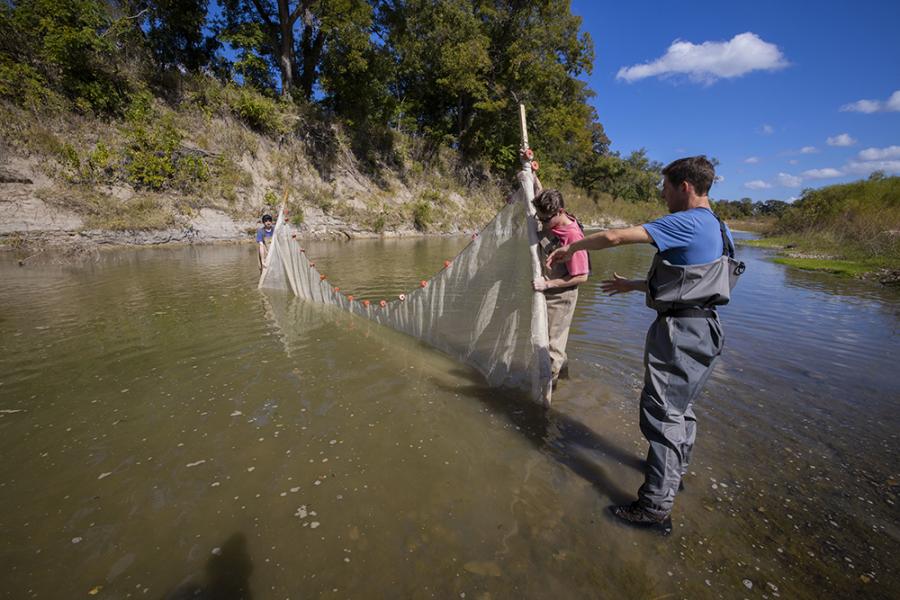
Ryan A. McManamay, assistant professor of environmental science, is among the recipients of the Sustainability Science Award from the Ecological Society of America, given to the authors of a scholarly work that makes the greatest contribution to the emerging science of ecosystem and regional sustainability.
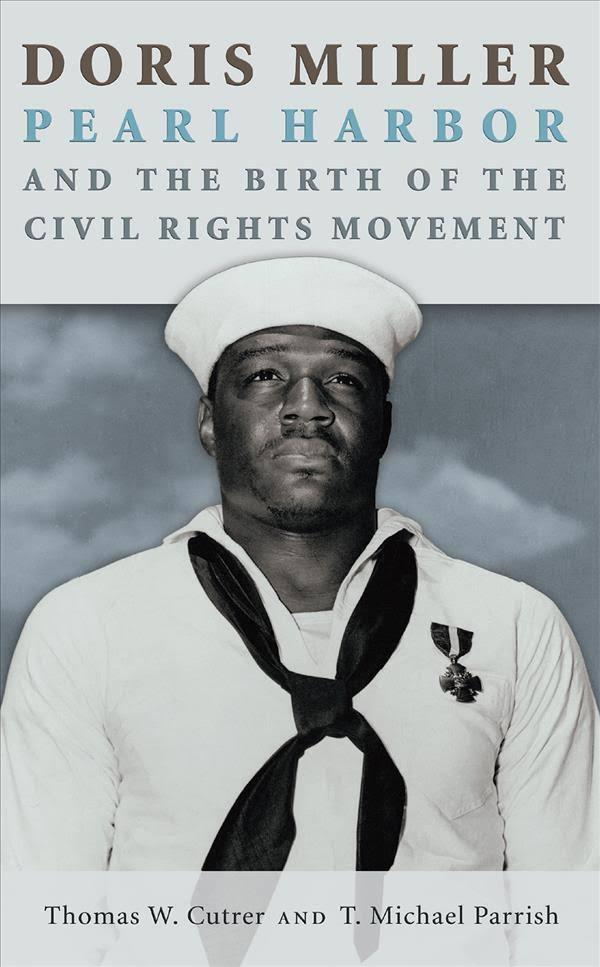
Doris Miller was "the first American hero of World War II," but as an African-American in the 1940s, his impact had to fight through layers of suppression. Now, a Baylor history professor's work is shining increased light on his contributions-not only at Pearl Harbor, but on the Civil Rights Movement that followed.
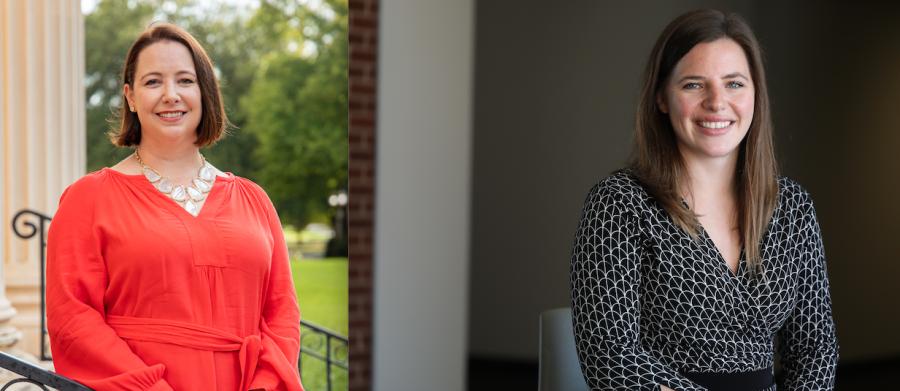
The awards, presented to educational psychology faculty Tonya Davis and Stephanie Gerow, provide over $800,000 in funding to provide Texas parents and teachers with behavioral intervention training.

Baylor marketing professors found that fear plus information receptivity equals preventive behaviors to protect self and others during COVID-19 pandemic.
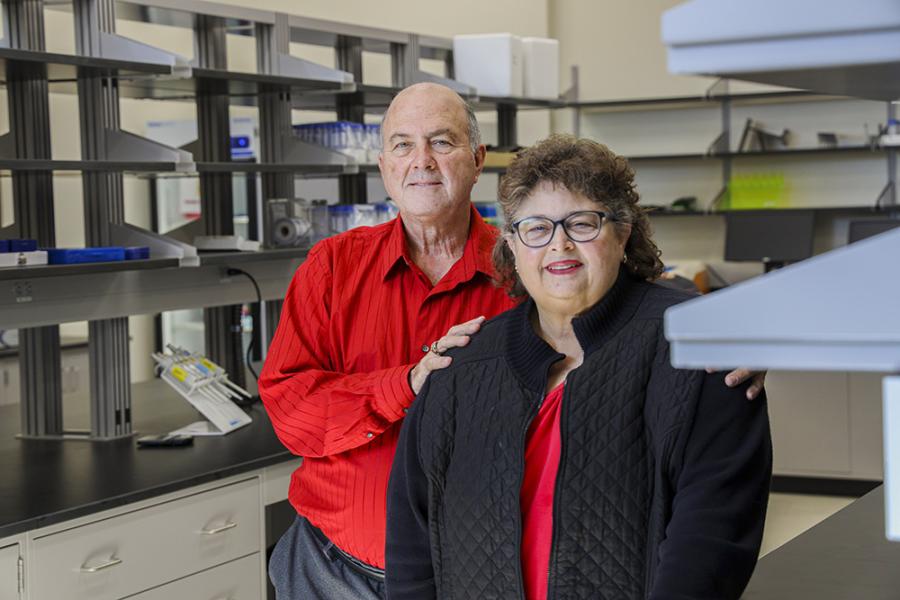
A new Baylor laboratory will house high-level research in cancer, kidney disease, heart disease, diet and more, backed by a family who found a meaningful way to honor the memory of their son.
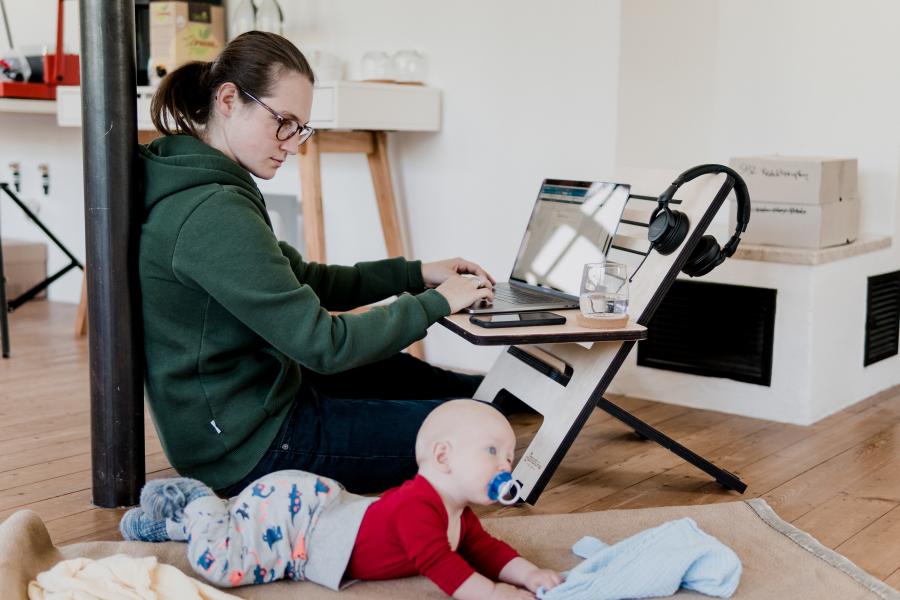
National work-family policies that give lower-income families more time together while allowing them paid time off are more effective for children’s psychological health than cash transfers, according to a study of developed nations led by Baylor University.
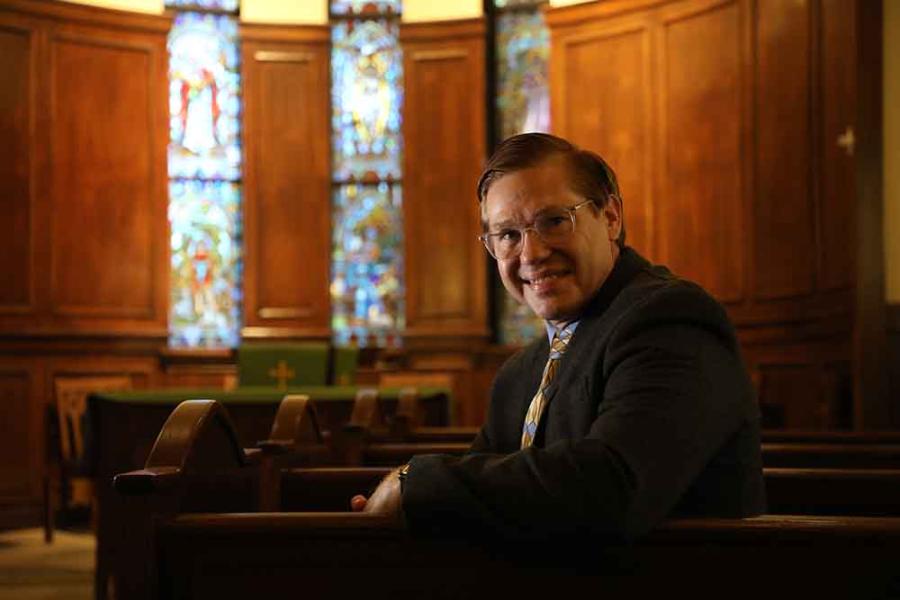
A research team that includes a Baylor University scholar on race and religion will lead a national effort to help congregations confront structures of racism in their communities.
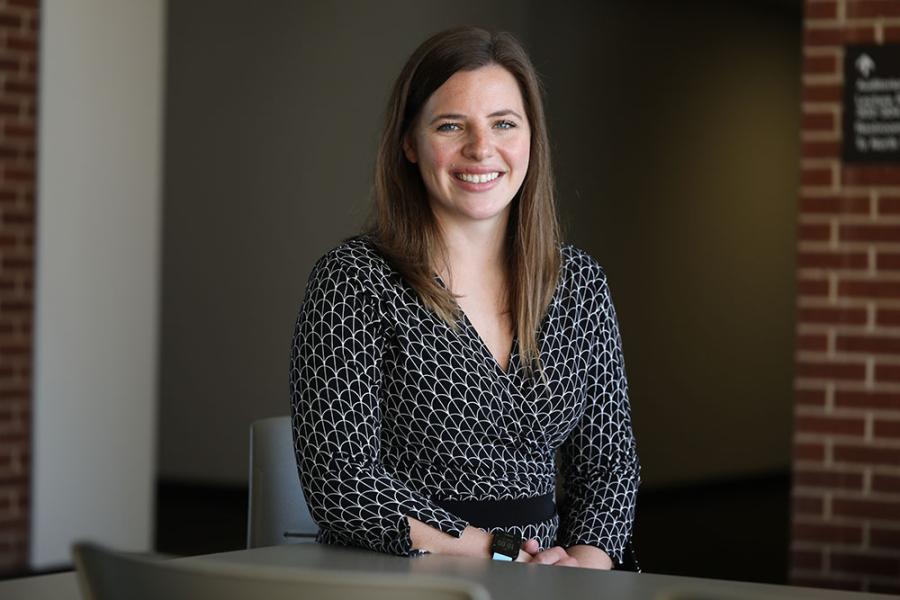
A coveted grant from the U.S. Department of Education, awarded to Stephanie Gerow, assistant professor of educational psychology, will fund research to provide early childhood professionals with behavioral intervention training for children with developmental disabilities.
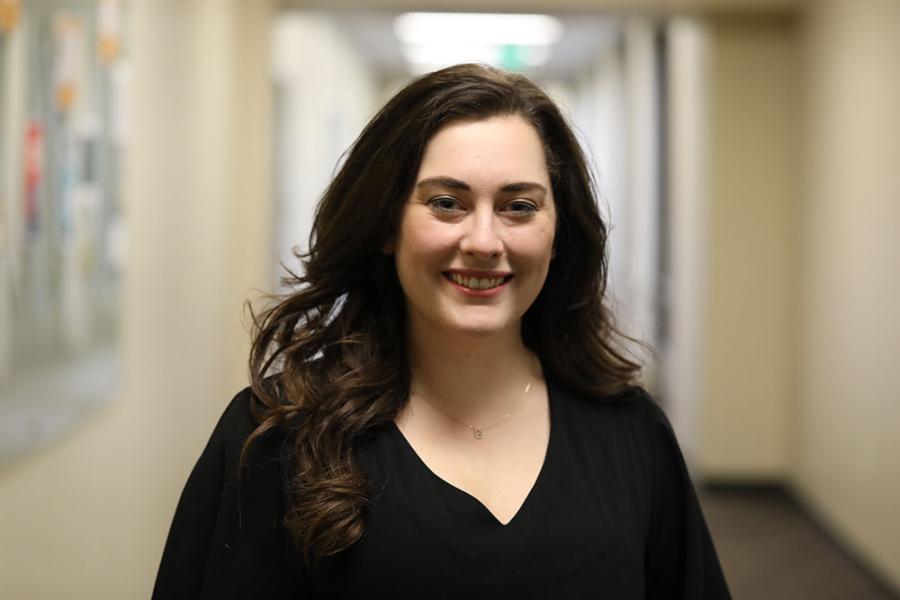
Tools of innovation, science and technology look to the future. To fully understand current and future health challenges, however, Mary Lauren Benton, Ph.D., assistant professor of bioinformatics, says history cannot be ignored.
Both organizations commit to efforts through research, service to address issues of systemic poverty, combining research expertise of health and human sciences faculty with community connections and resources in Rwanda.
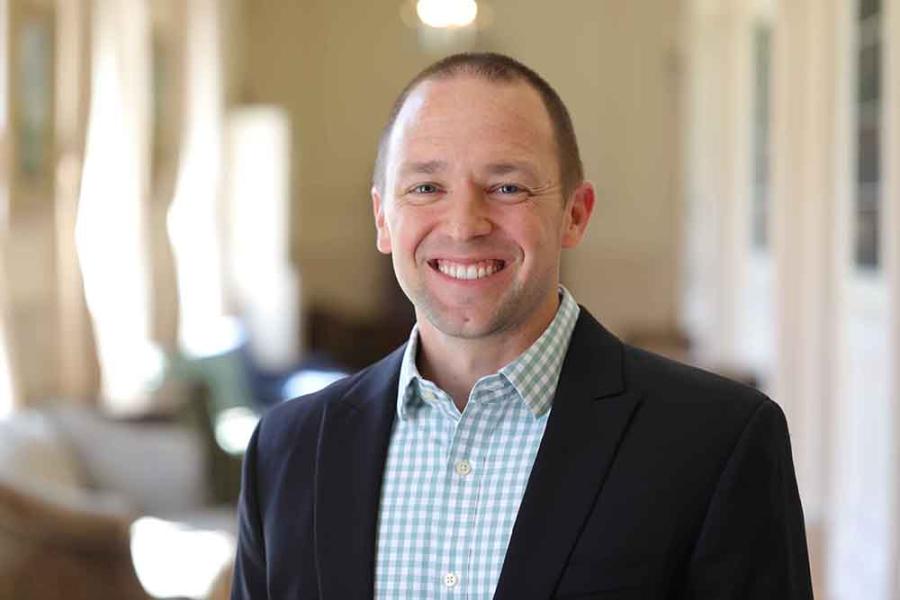
An organization that projects an ethical face but whose managers fail to respond to internal ethical situations can lead to a lack of employees’ moral courage, according to a study led by a Baylor University researcher.
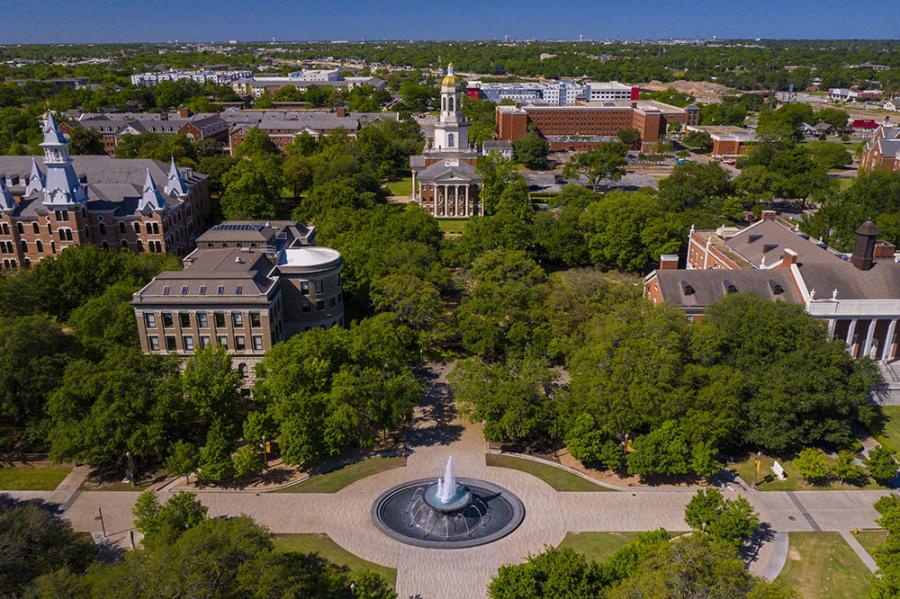
Amidst the challenges of presented in 2020, Baylor faculty "knocked it out of the park," exceeding significant research goals. A variety of research metrics and external honors, staff additions, new programs and more demonstrated substantial growth towards Baylor's Illuminate vision.
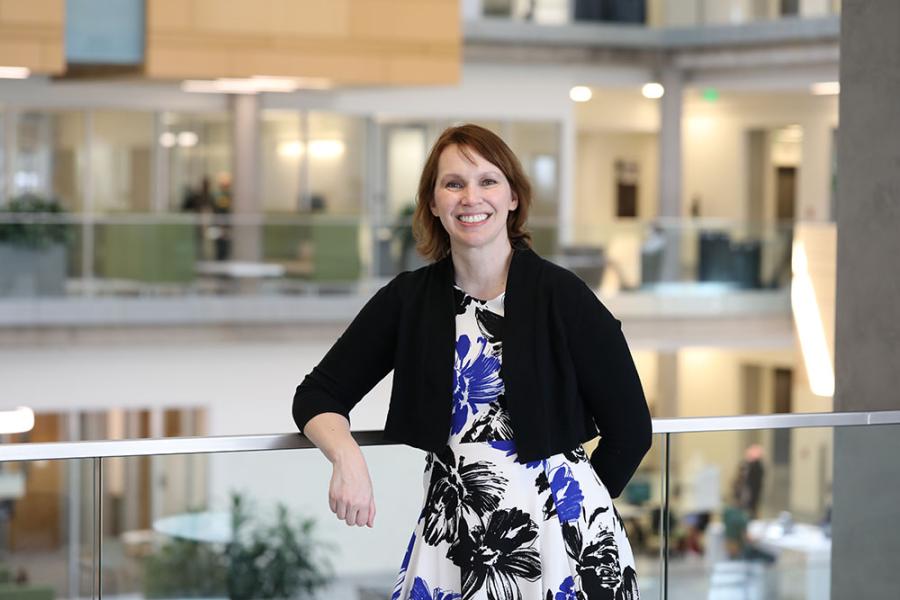
A $250,000 NSF grant will fund the formation of an interdisciplinary team, co-led by Baylor Information Systems Professor Stacie Petter, to analyze obstacles and propose solutions to empower law enforcement to more effectively combat human trafficking.
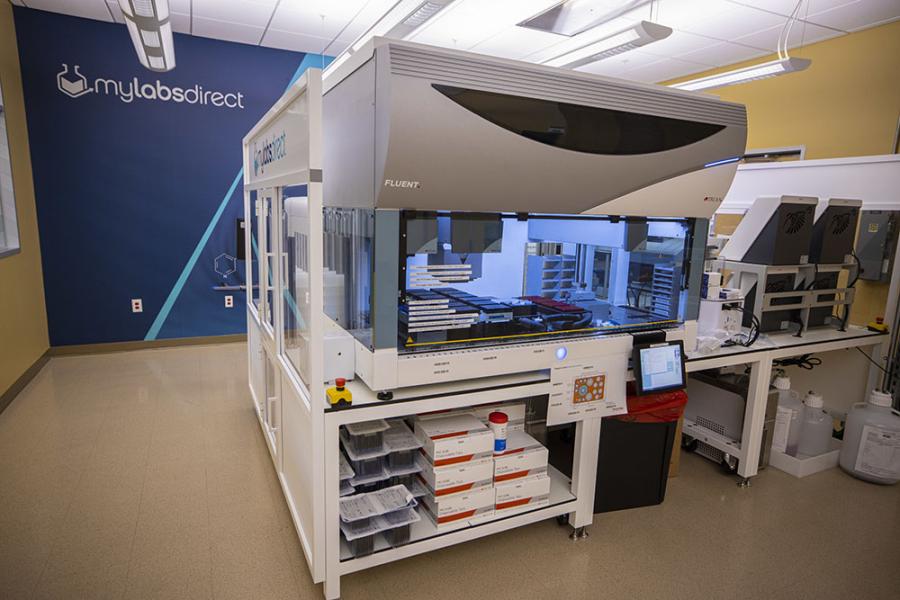
Baylor and My Labs Direct partnership yields multi-million dollar lab. Located in the Baylor Research and Innovation Collaborative, the lab will serve as a campus and community resource and advance Baylor's R1 research growth.

Discover how Baylor faculty, students and alumni apply statistical knowledge to the fight against COVID-19.
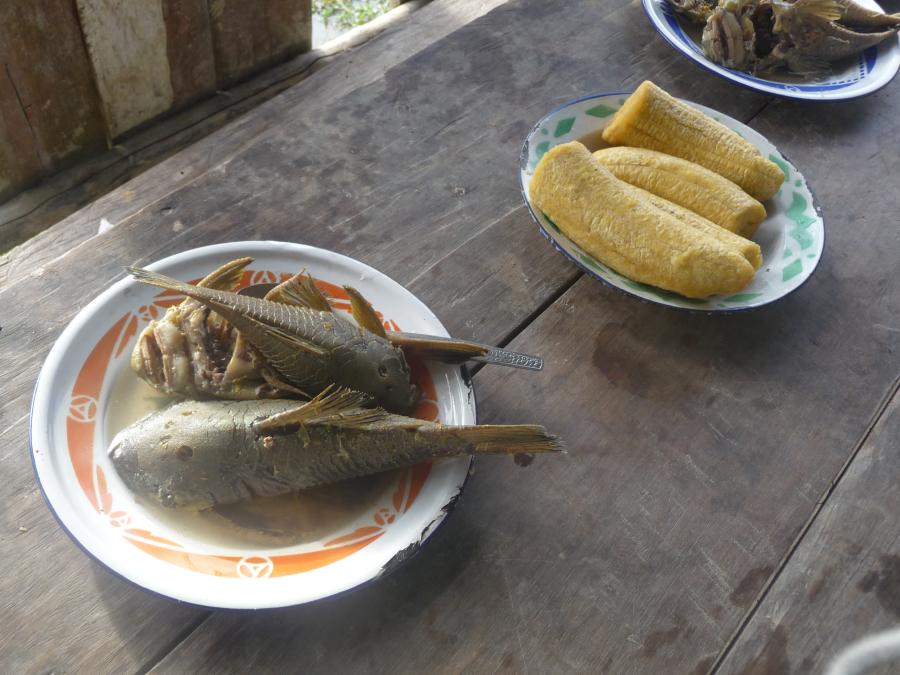
Findings among children in Amazonian Ecuador offer insight into the relative importance of diet versus energy expenditure for rise in obesity.
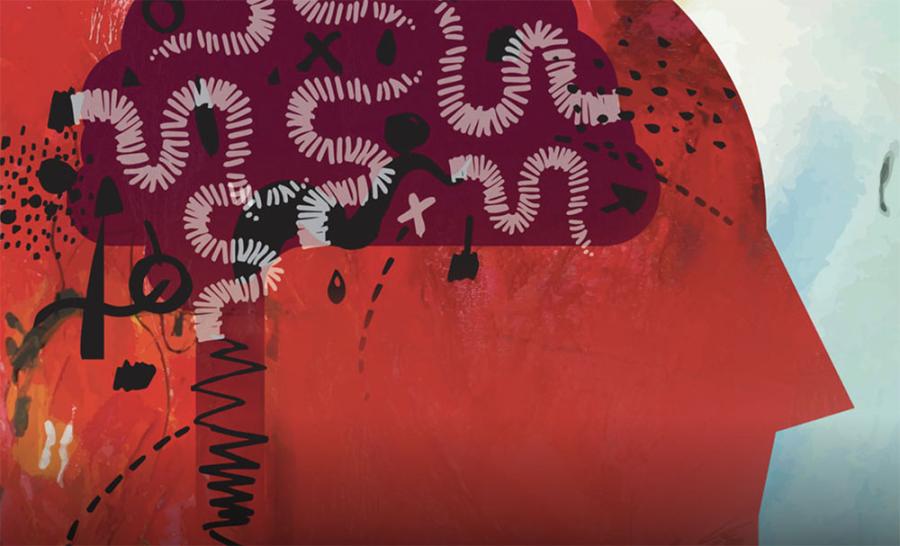
Baylor researcher Annie Ginty, Ph.D., an APA Rising Star and NIH career development award recipient, builds understanding of stress, the brain and the heart.

An $890,000 Department of Energy grant will fund extensive research throughout Houston metro area over a three-year period to examine the relationship between pollution and convective cell thunderstorms.
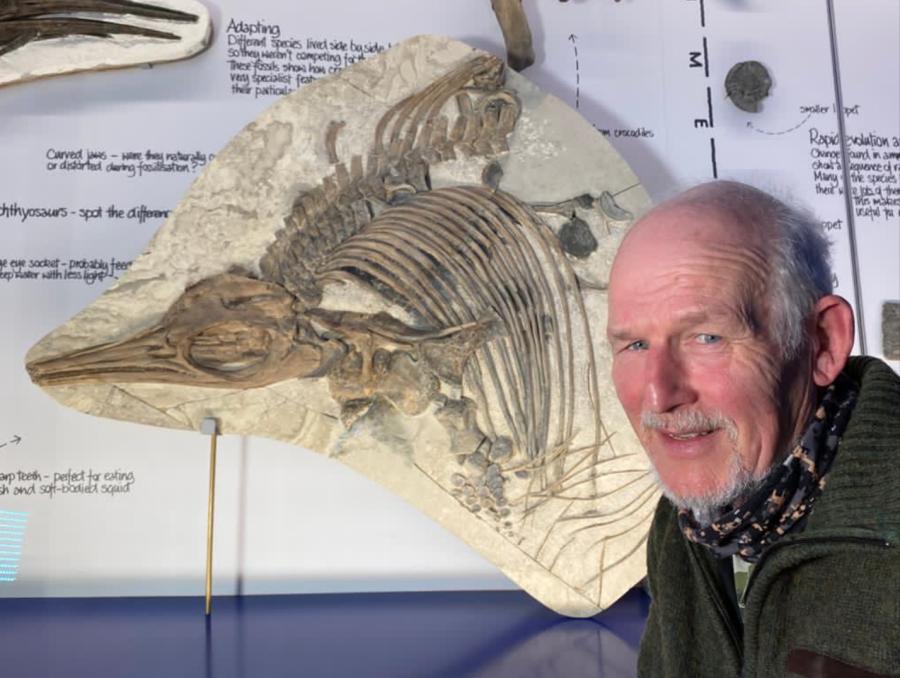
Baylor geosciences doctoral student co-authors PLOS One journal article identifying mysterious marine reptile found off English coast.

Brief “huddles” — rather than a barrage of emails and texts about safety and risk — may be the fastest and simplest way for hospital workers to avoid communication overload as they deal with the flood of COVID-19 cases, a Baylor University researcher says.

As people age, they lose lean muscle mass without appropriate interventions. That decline has a variety of health implications. LesLee Funderburk in Baylor Human Sciences and Design researches methods to counter that loss and improve health throughout the aging process.
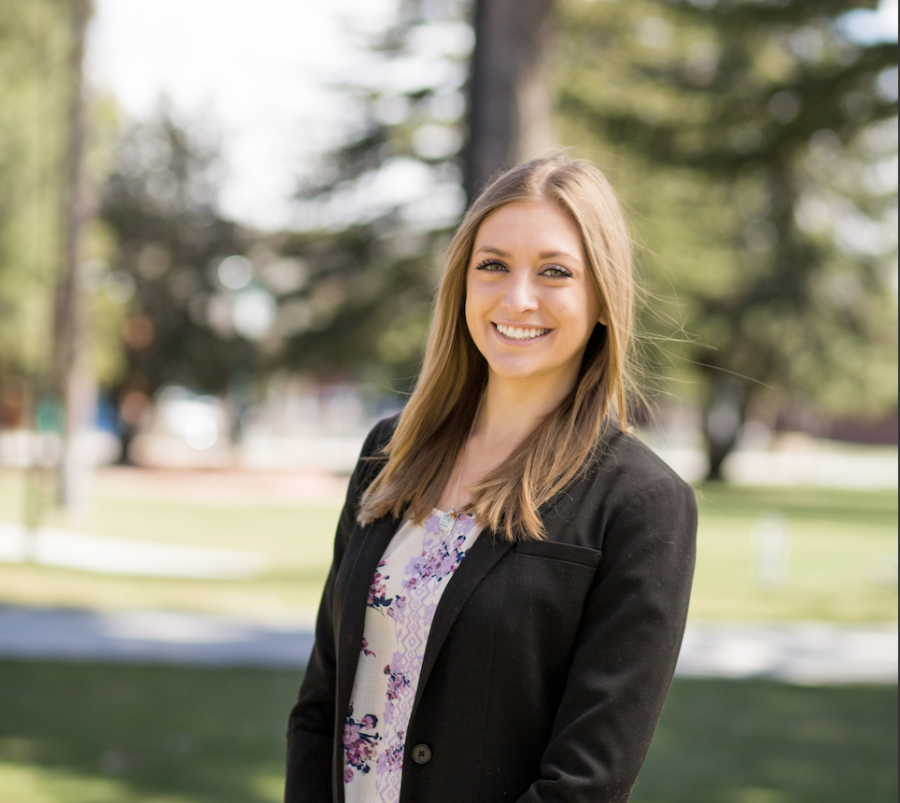
Cynical hostility is a potential pathway to cardiovascular disease by preventing a healthy response to stress over time, according to a study led by Baylor University in the journal Psychophysiology.

Racially diverse congregations have increased substantially in the United States over the past 20 years, and the percentage of all-white congregations has declined, according to a study by Baylor University sociologists.
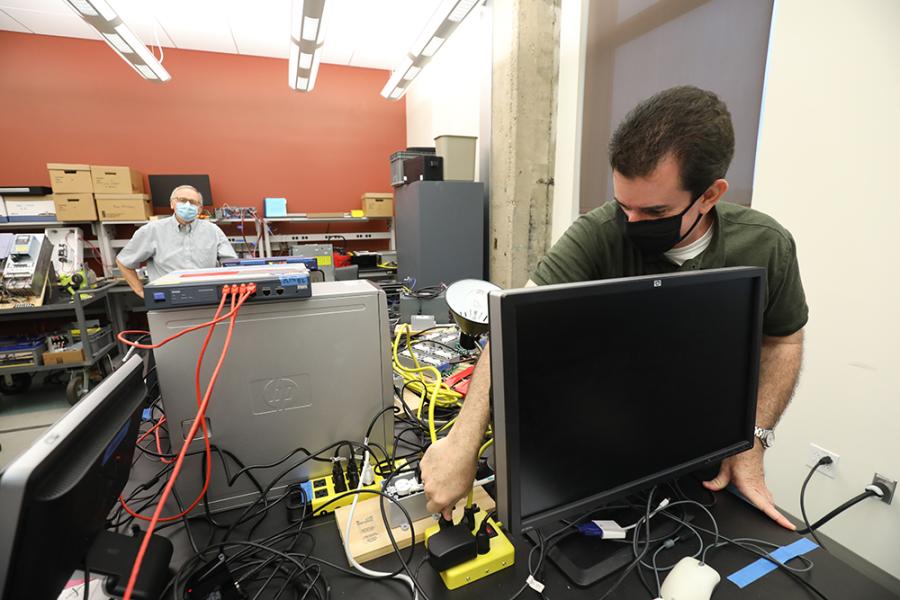
Electrical and computer engineering professor Mack Grady contributes to U.S. national defense efforts through electric power systems research.
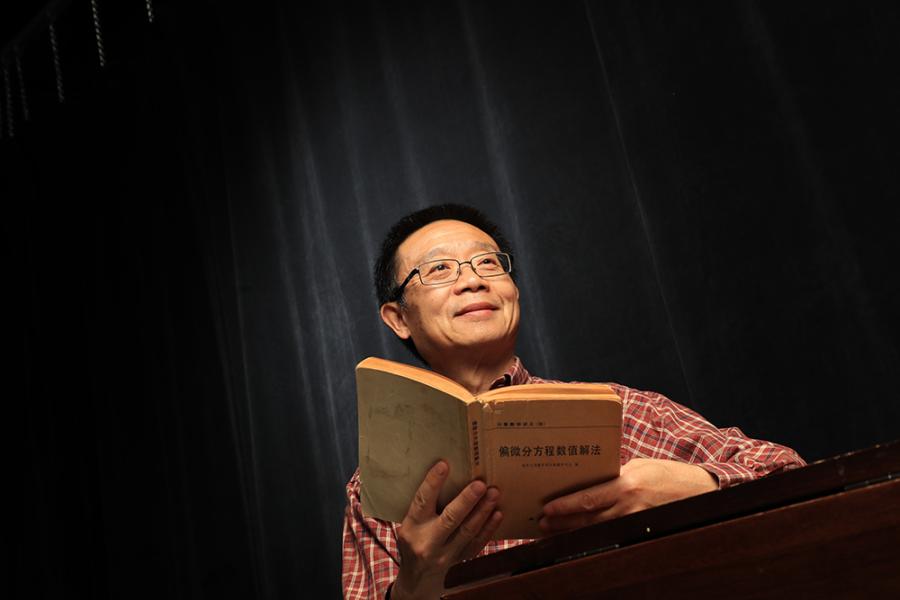
From combustion engines to black holes, Tim Sheng's applied math research demonstrates how mathematics provide interdisciplinary heft to tackle meaningful challenges in the physical world.
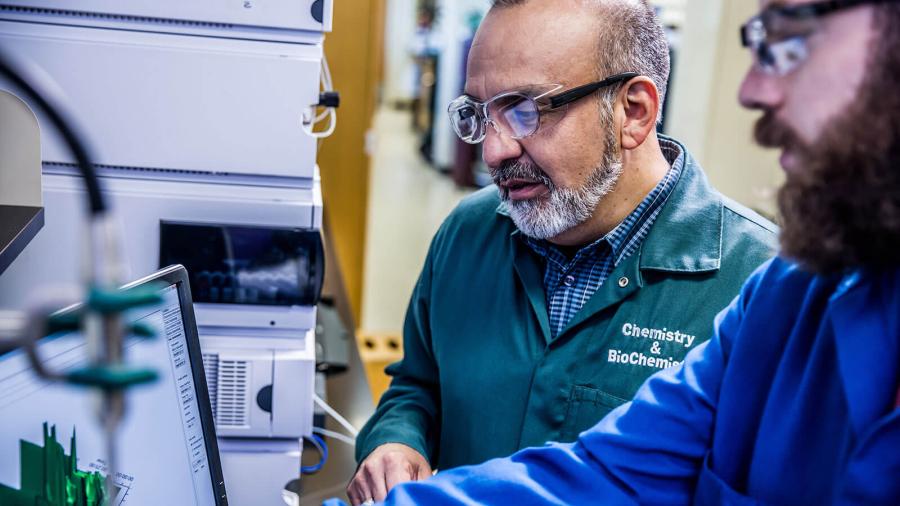
Daniel Romo pursues drug leads to fight cancer through the synthesis of organic molecules.
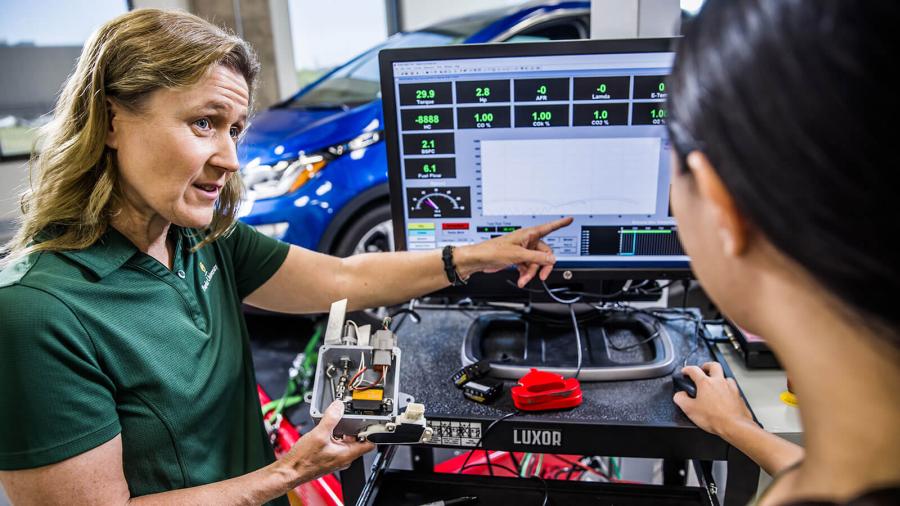
Annette von Jouanne advances sustainable transportation methods inside her Baylor laboratory.
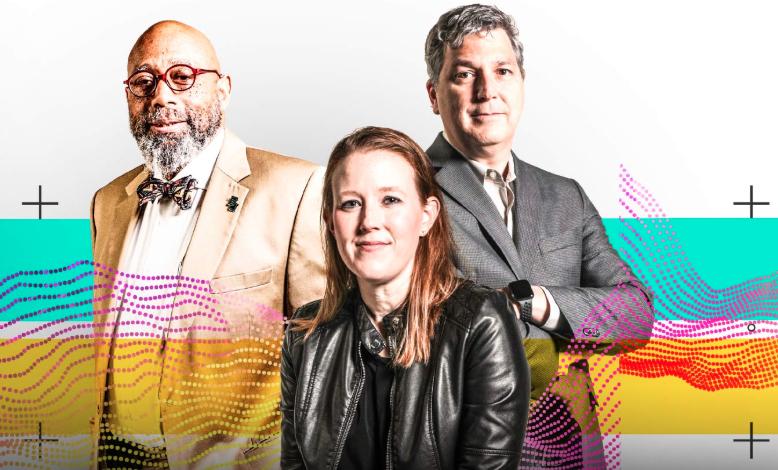
A journey into the world of data sciences at Baylor University, from disciplines like statistical science, computer science, public health, information systems, Biblical studies and more.
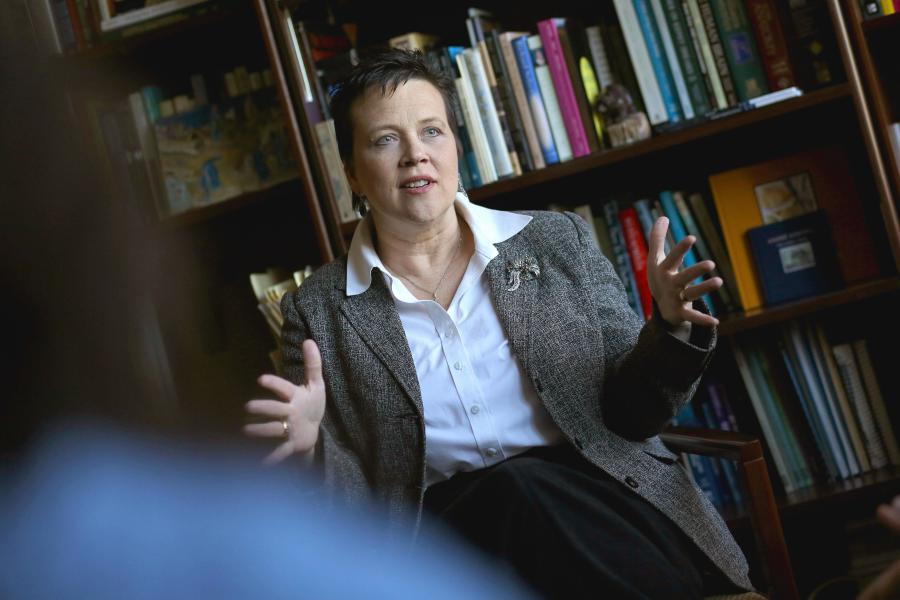
Houston-based Foundation creates Chair in Medical Humanities; Lauren Barron announced as chairholder.
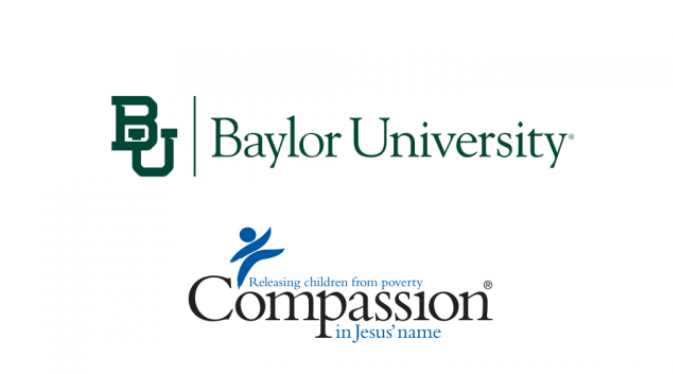
Both organizations commit to research partnership to address issues that keep many in poverty.
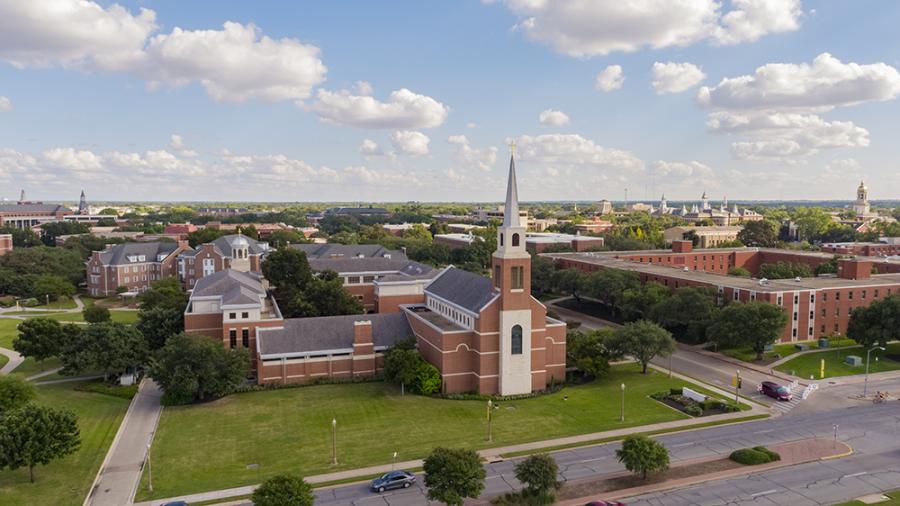
In many settings, the perceived gap between curriculum in science classes and seminaries can be difficult to bridge. Baylor University's Truett Seminary, however, is doing just that thanks to a grant providing science insights for ministry professionals.
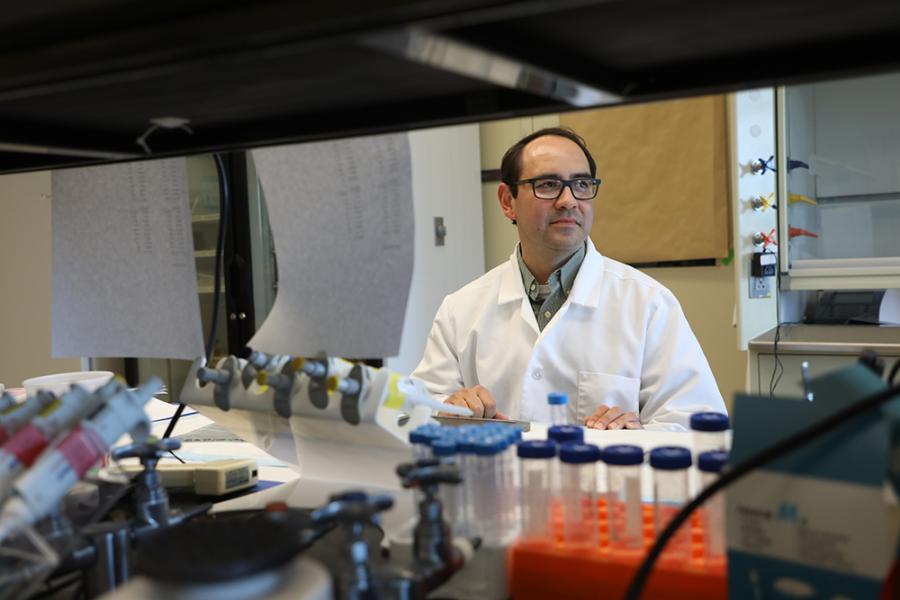
The CDC estimates that 1 in every 54 U.S. children meets Autism Spectrum Disorder criteria, highlighting the need for treatment and insight for a disorder about which little is understood. Meet four Baylor professors whose research supports children and families who work daily to overcome autism's challenges.

Using smartphone check-ins twice a day for two weeks, sociologists in a national study have found a link between individuals’ daily spiritual experiences and overall well-being, say researchers from Baylor University and Harvard University.
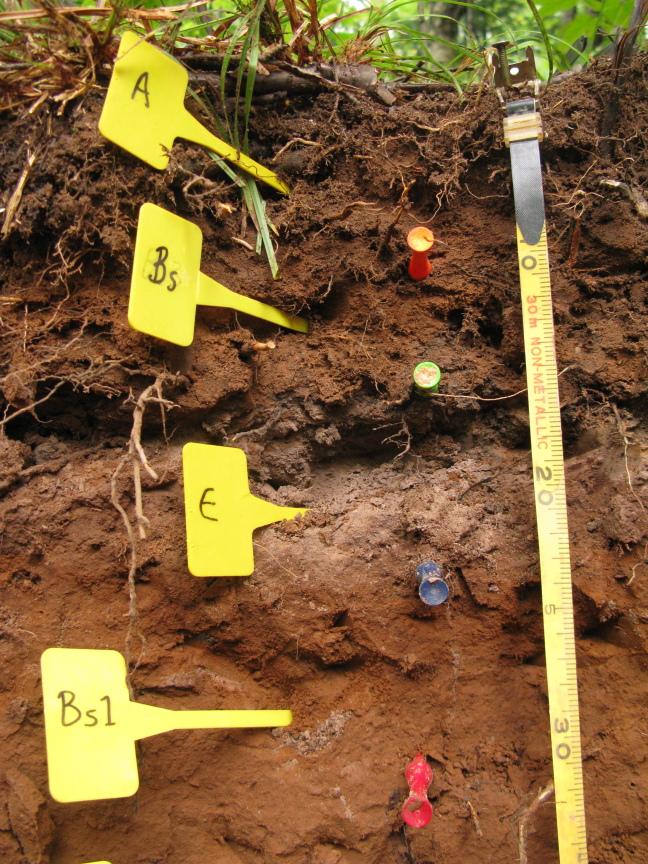
Geoscience lab at Baylor studies dozens of soil samples from across North America to understand soil formation patterns, providing insights into soil carbon's future impact on climate.
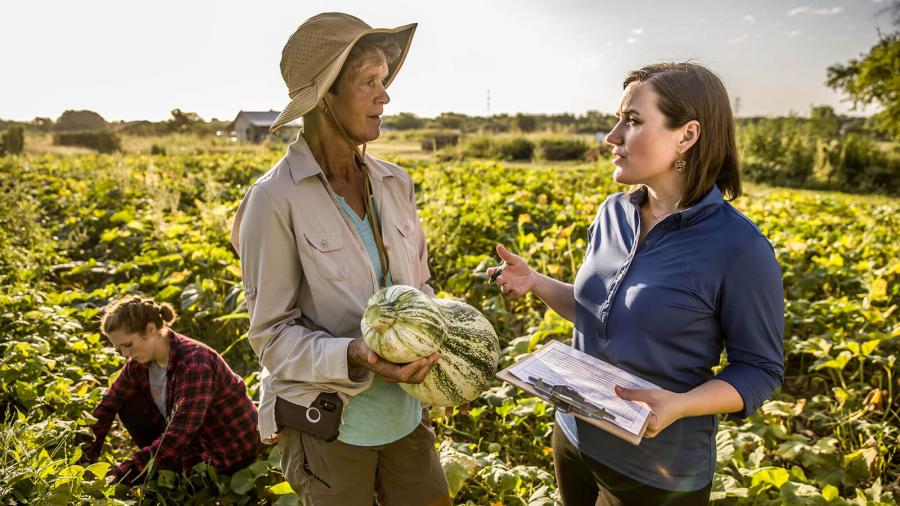
Kelly Ylitalo promotes community health through data-driven research partnerships.
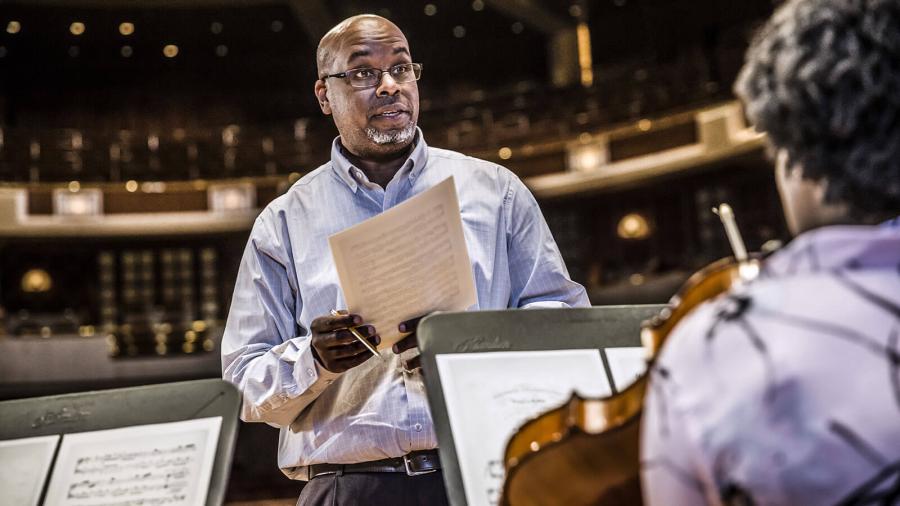
Horace Maxile illuminates the music of Black composers for modern audiences and stages.
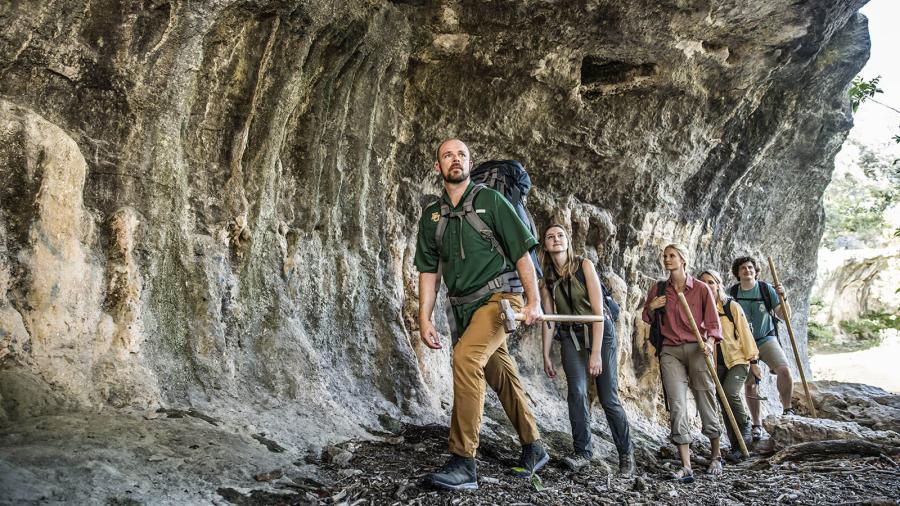
Kenny Befus explores a novel approach to the study of geological forces.
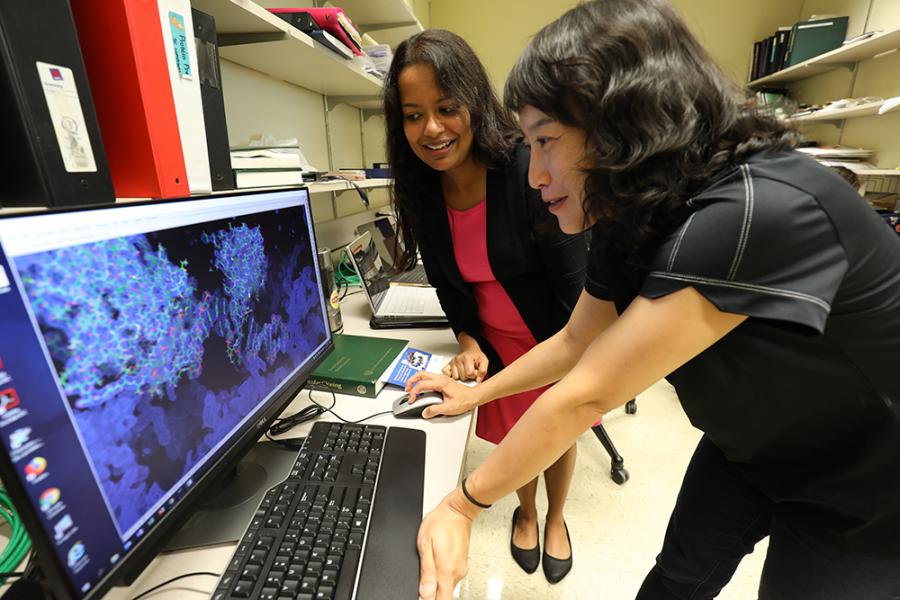
Baylor celebrates the role of postdoctoral scholars, who make important contributions to research and scholarship. The University's investment in postdoctoral scholars highlights their impact on Baylor's ambitious Tier 1 research vision.
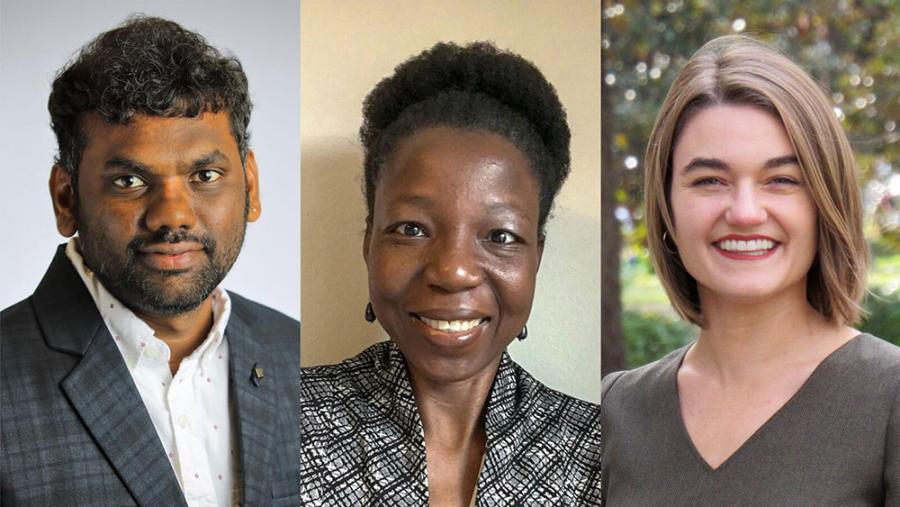
Postdoctoral scholars fuel Baylor research and advance the University mission through significant roles in labs and classrooms across campus. Meet three Baylor postdocs who serve their departments as they pursue their own academic and research goals at Baylor.

Baylor postdocs are a diverse and talented group of scholars. Each has a unique background and reason for choosing Baylor as the next step in their career development. Hear from Baylor postdocs in this series of videos.
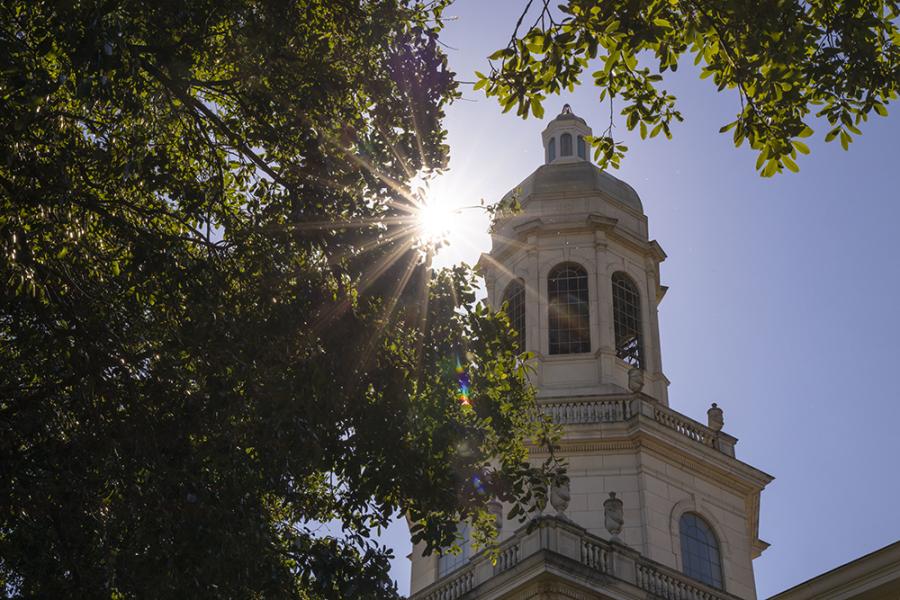
Baylor Postdoctoral Scholars and Baylor's Postdoc Association provide a framework to meet the unique professional and personal needs of postdocs and foster a framework for intentional mentorship and growth.
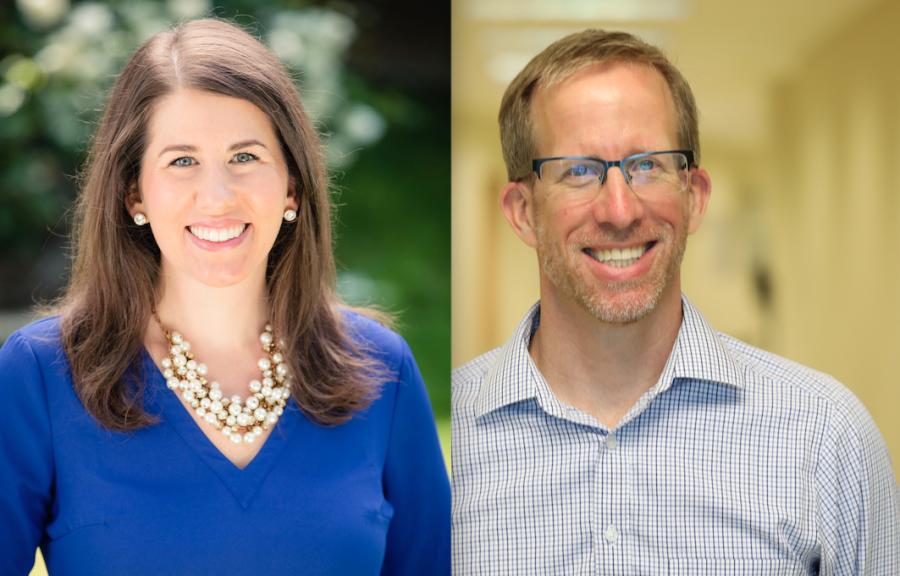
Baylor psychology and neuroscience professors seek to isolate how artistic encounters impact spiritual awareness, compassion and empathy.

Study is ‘first step’ to understanding how oxytocin during stressful events in young people may be linked to their future, Baylor University researcher says.
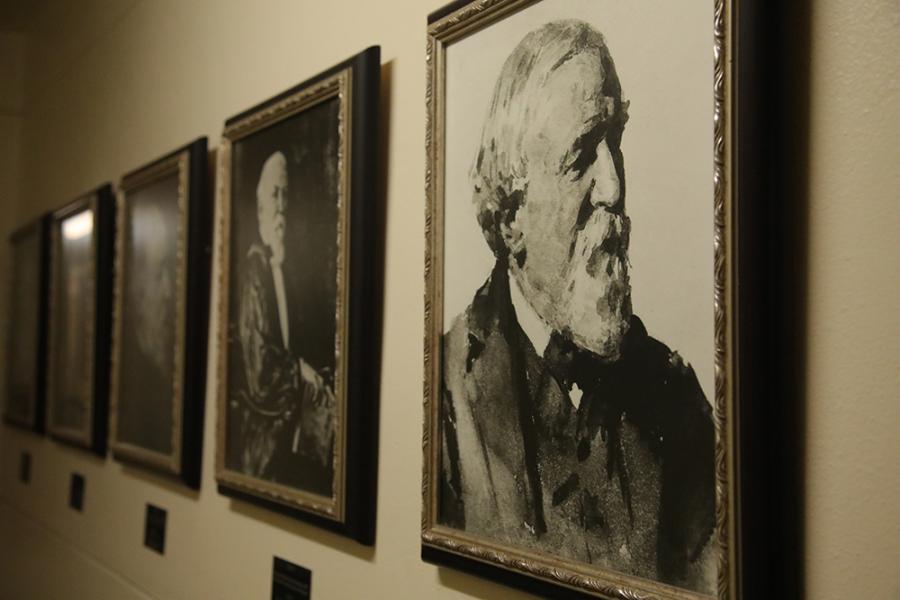
Baylor University Libraries has been awarded a $300,000 grant from the National Endowment for the Humanities to support the research of two Browning scholars. The funds will enable editing and publishing of letters written by and to Victorian poets Robert and Elizabeth Barrett Browning.

People with lower biological response to standard stress showed more PTSD symptoms after COVID-19 crisis began in study that surprised researchers.
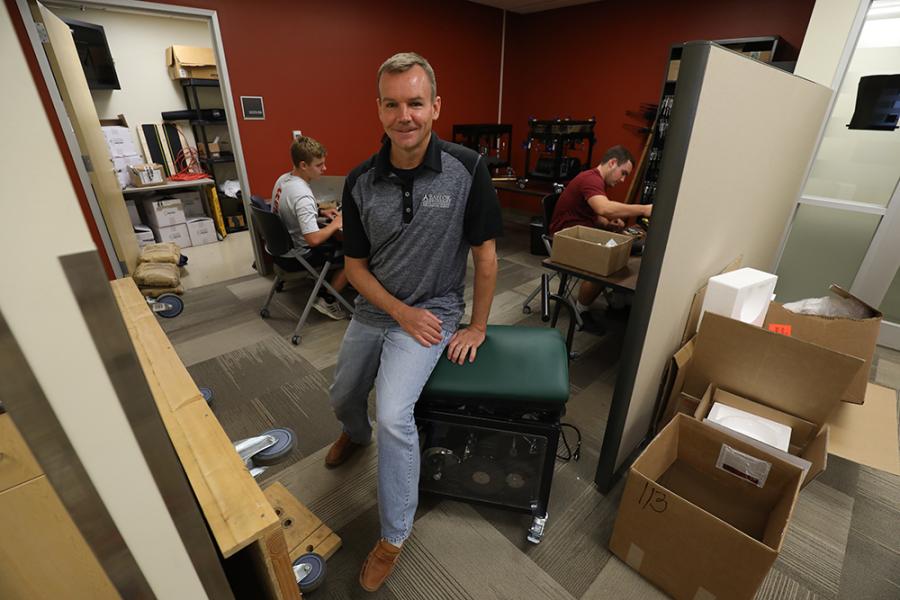
An interdisciplinary team at Baylor received a grant to evaluate a device that simulates the motion of riding a horse as an effective treatment for children with autism.
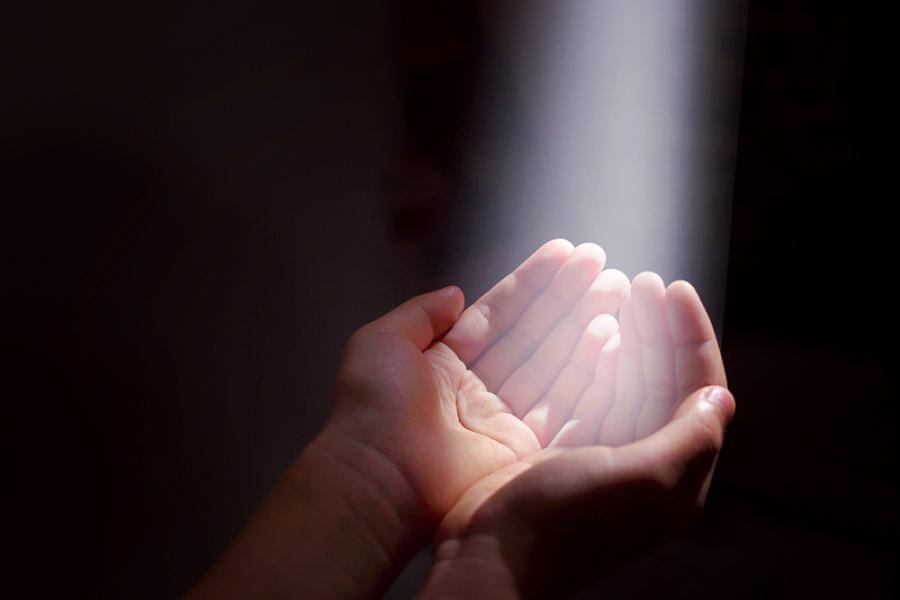
People who experience threats to their existence — such as economic and political instability — are more likely to attribute changes to the supernatural, according to a Baylor University study.
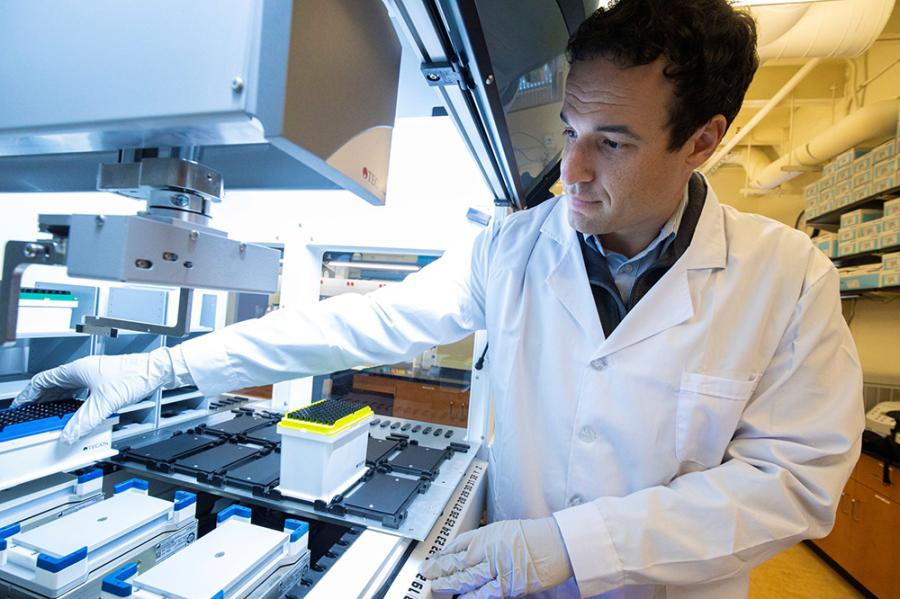
Baylor anthropologist Sam Urlacher, Ph.D., earns research funding, career development support from leading international research organization.
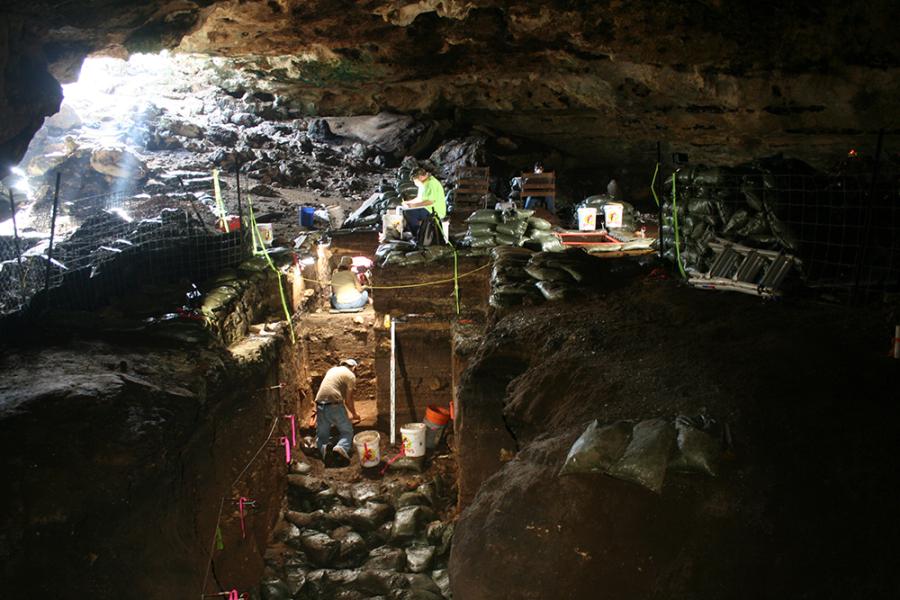
Researchers say cooling 13,000 years ago is coincident with major volcanic eruption.

USDA grant supports innovative pilot program designed to encourage Supplemental Nutrition Assistance Program (SNAP) participants to purchase and consume milk as part of a healthy, balanced diet.
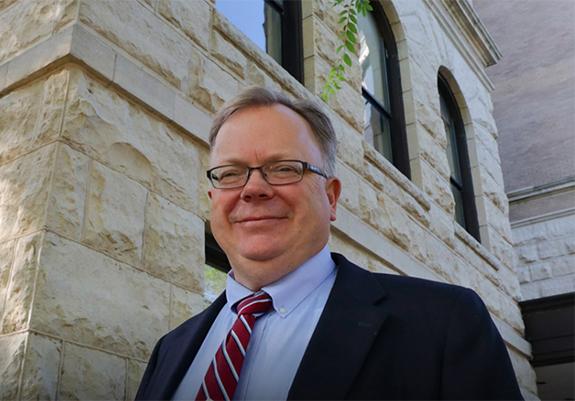
Legacy Scholar and one of America's foremost Twain scholars, Joe B. Fulton, moves offices of nationally acclaimed publication to Baylor.
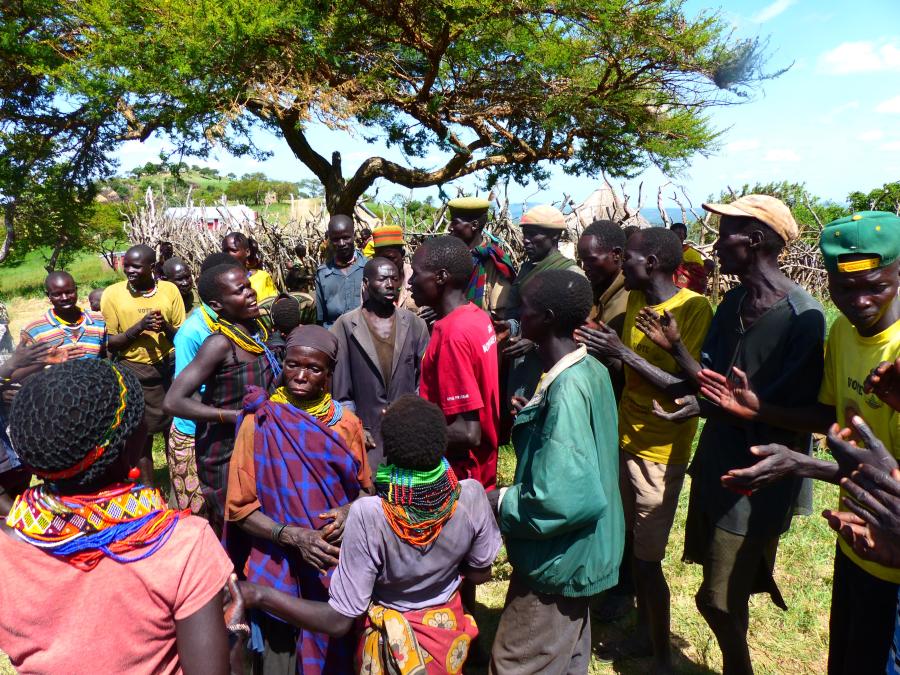
A mountain people in Uganda — branded as selfish and loveless by an anthropologist half a century ago — really is not, according to a study led by a Baylor University anthropologist.
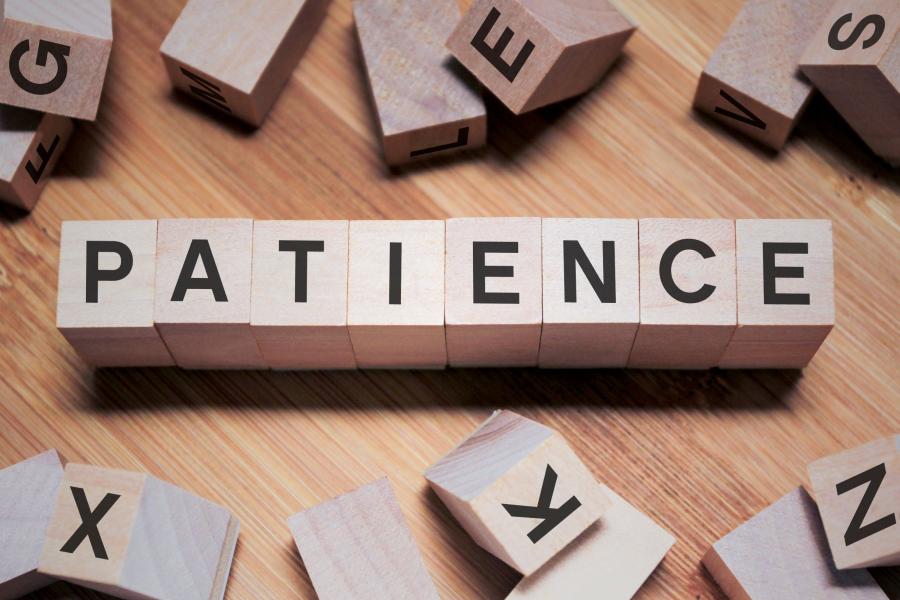
Inpatients in a spiritually integrated program reported greater calm, less depression at completion of treatment, among findings in Baylor University study.
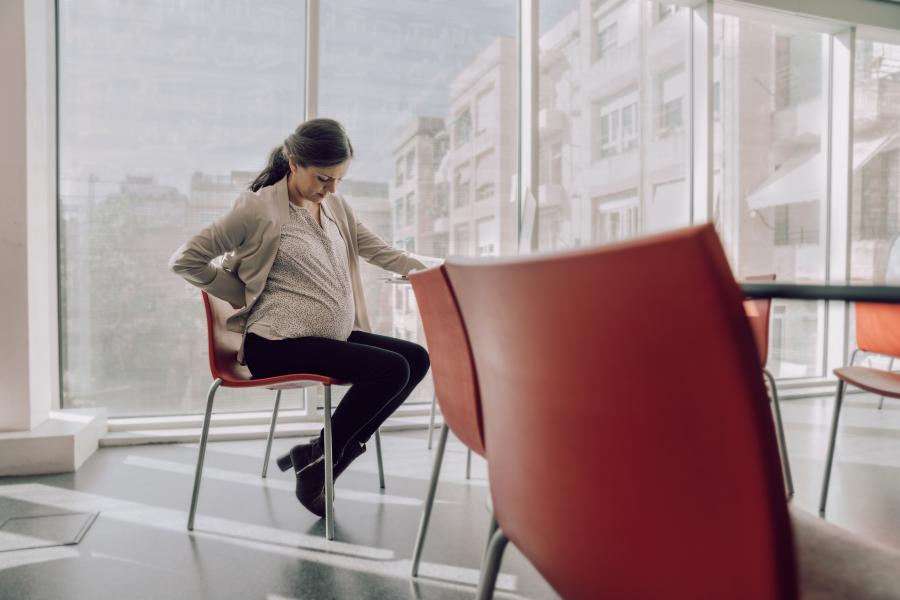
Perceived pregnancy discrimination indirectly relates to increased levels of postpartum depressive symptoms for mothers and lower birth weights, lower gestational ages and increased numbers of doctor visits for babies, according to a management study led by Baylor University.
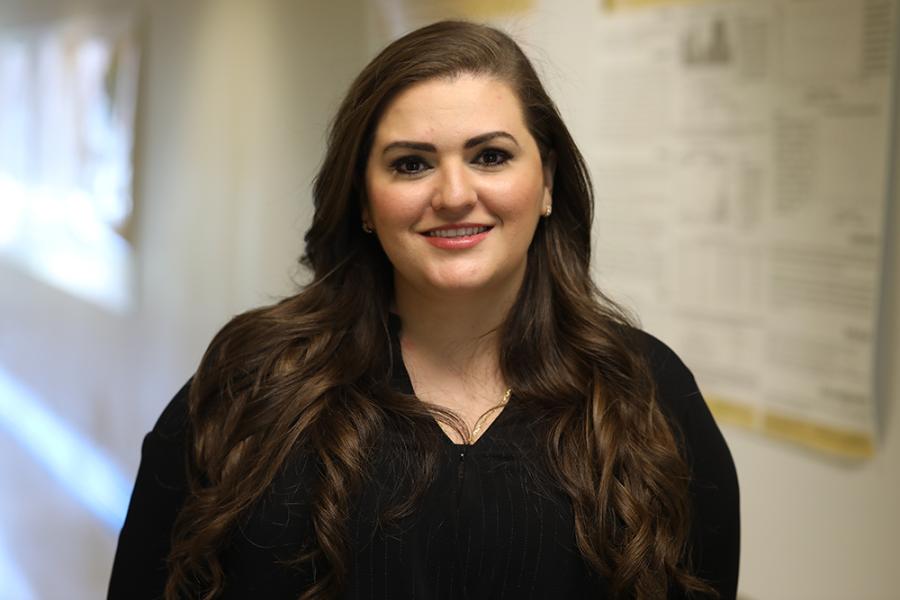
Liela Romero, a 2011 Baylor graduate, has distinguished herself as a leading young organic chemist and researcher. With the help of a $2 million CPRIT grant, she's returning to her alma mater to teach and contribute to Baylor's growing research enterprise.
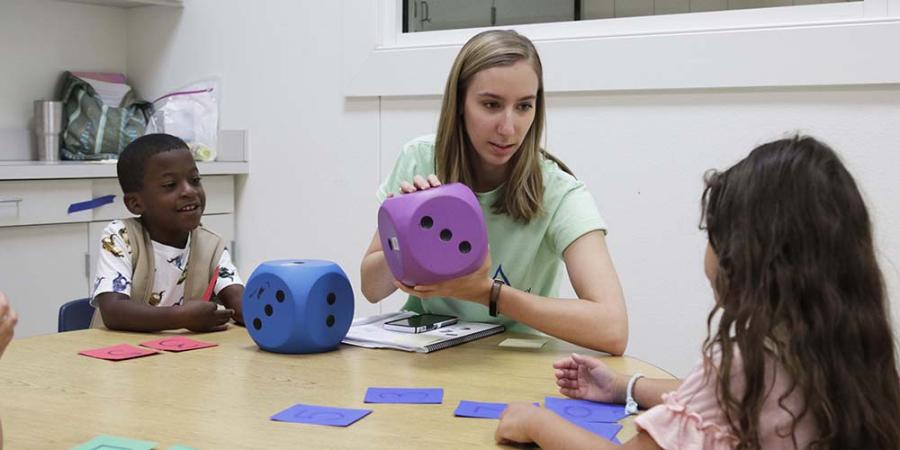
A Baylor summer program provides math intervention for children aged pre-K through second grade, developing research-based curriculum and programs to help students build a foundation for mathematic success.
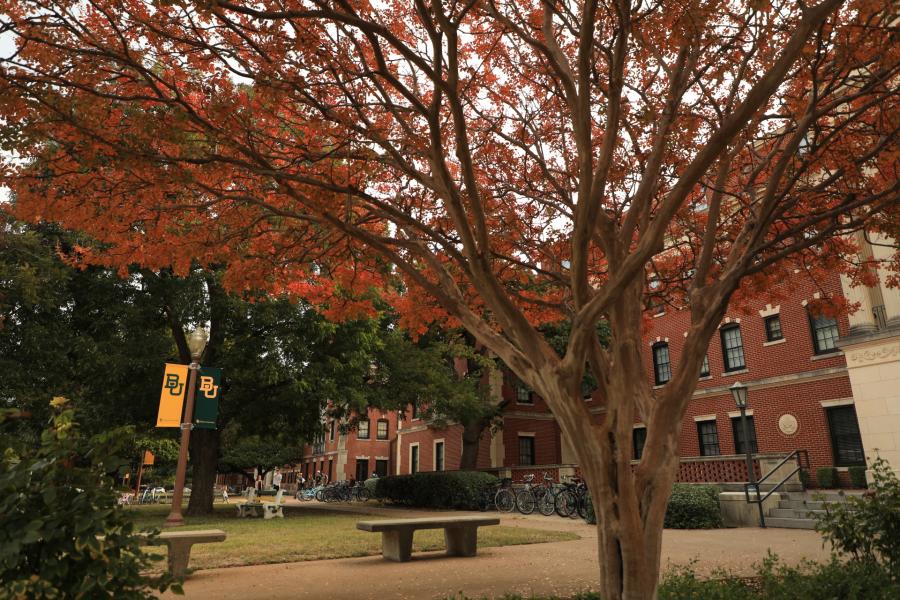
The new endowed faculty position within the Honors College will provide increased emphasis within the College on research in the Health Sciences.
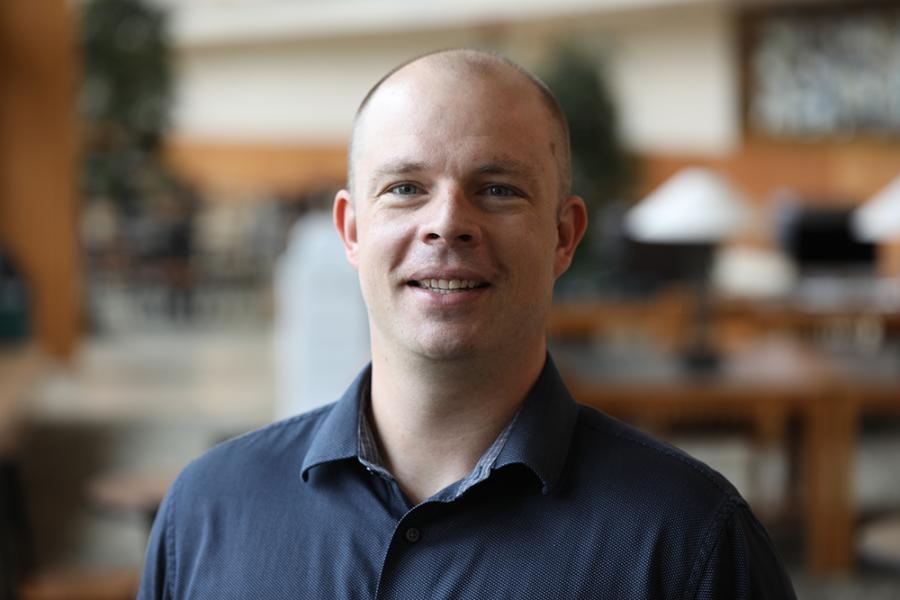
Kenny Befus, assistant professor of geosciences, is one of four Baylor faculty members to earn CAREER awards from the National Science Foundation this spring. Learn more about his research studying strains in minerals and gemstones as a record of geological forces.
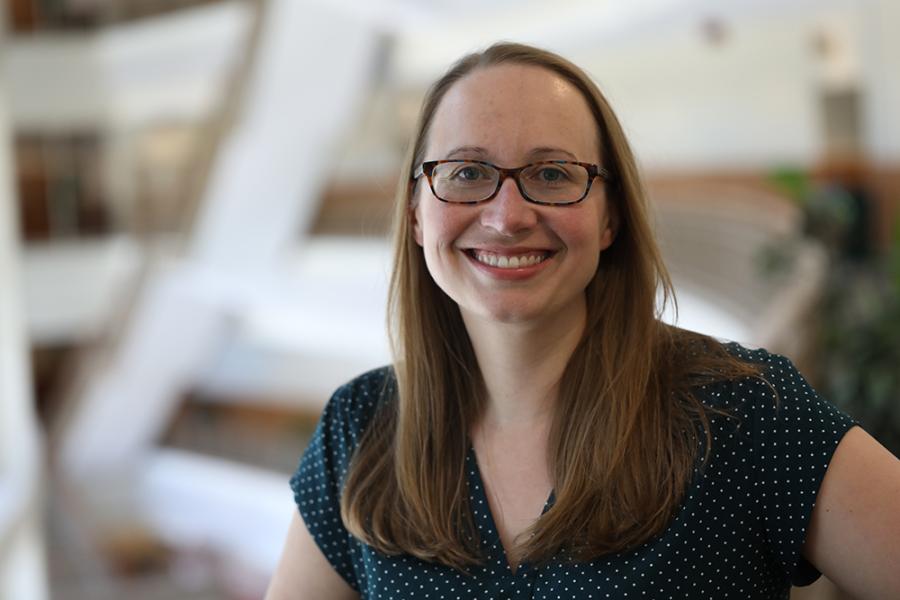
Elyssia Gallagher, assistant professor of chemistry and biochemistry, is one of four Baylor faculty members to earn CAREER awards from the National Science Foundation this spring. Learn more about her novel research to devise new methods for analyzing the function of glycans and their impact on the body.
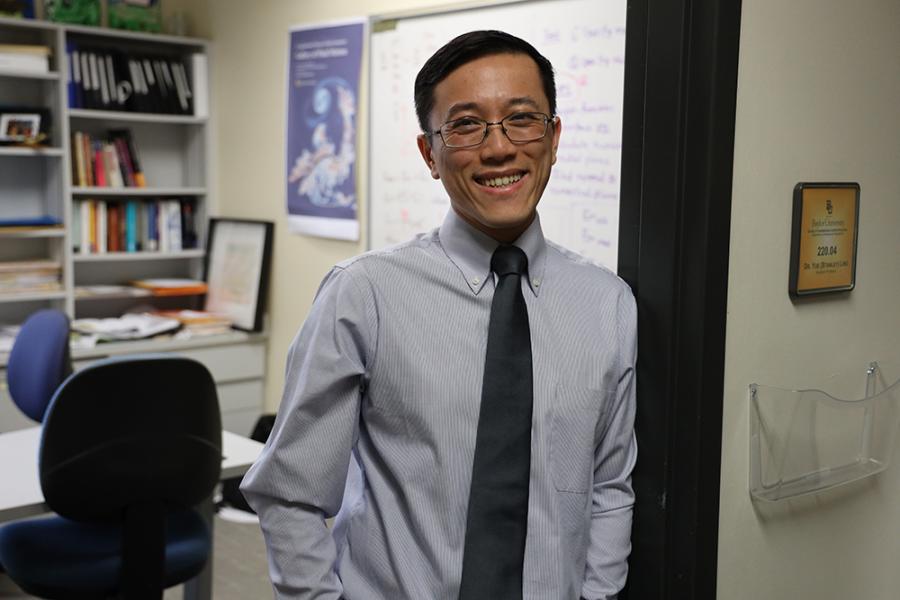
Stanley Ling, assistant professor of mechanical engineering, is one of four Baylor faculty members to earn CAREER awards from the National Science Foundation this spring. Learn more about his expansive research studying and simulating fuel sprays to enable engineers to develop more efficient fuel injection systems.
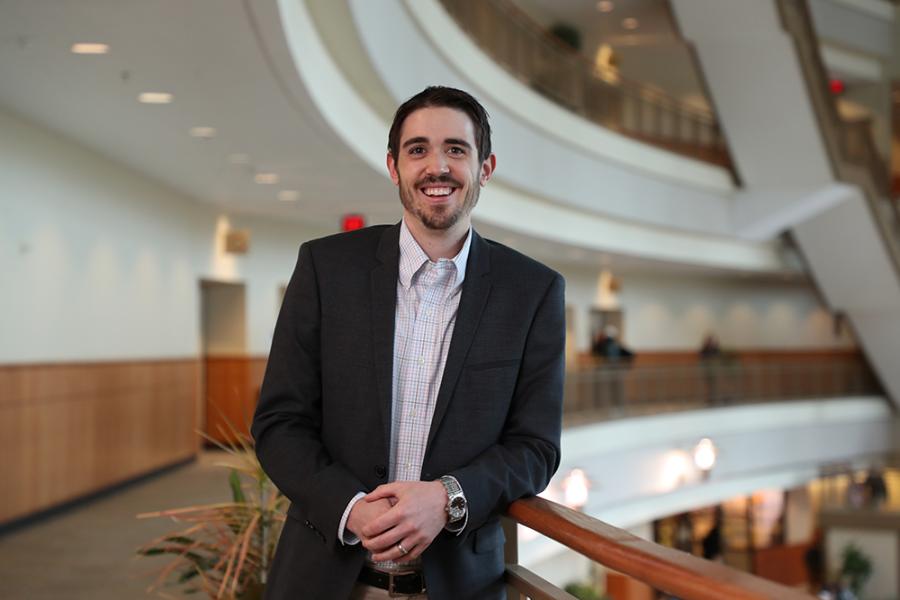
Michael Scullin, assistant professor of psychology and neuroscience, is one of four Baylor faculty members to earn CAREER awards from the National Science Foundation this spring. Learn more about his research studying the relationship between sleep and the ability to learn complex STEM materials.
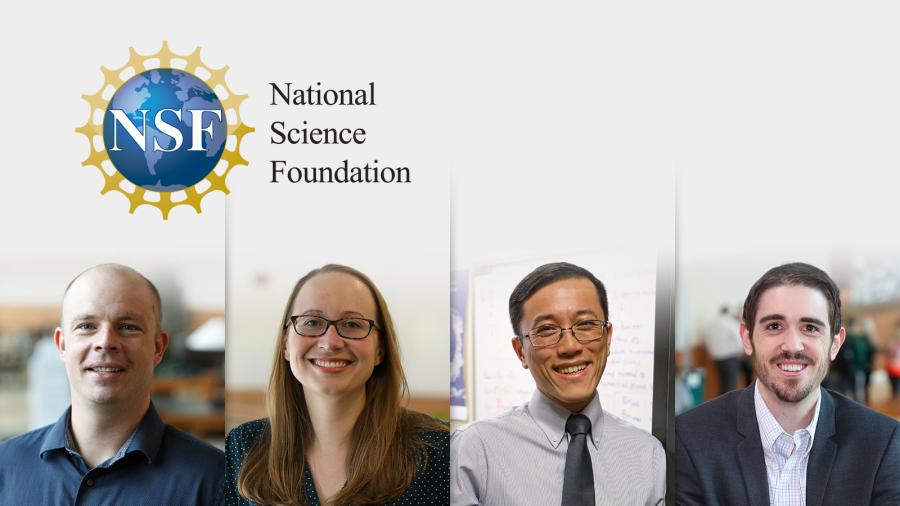
Baylor University’s drive toward Research 1 (R1) status received a major boost this spring as four faculty members earned prestigious CAREER development awards from the National Science Foundation (NSF).
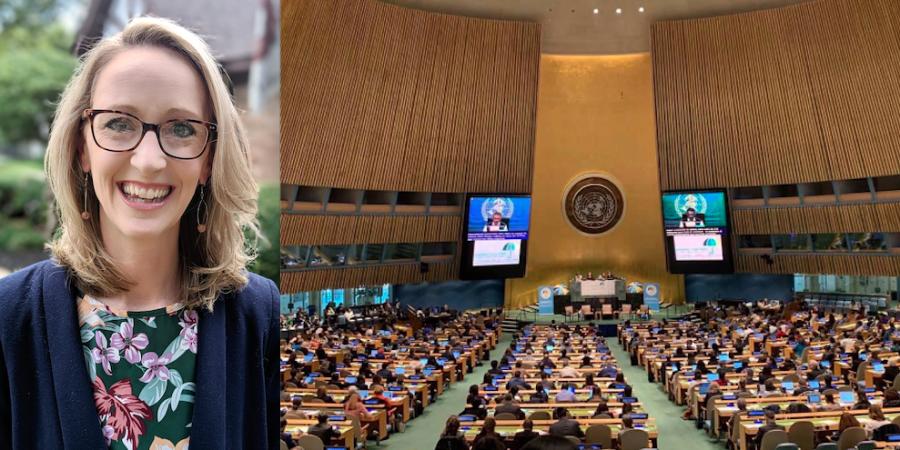
Around the world, a variety of challenges keep children in need of life-changing surgery from getting the care they need. Baylor epidemiologist Emily Smith aims to bridge that gap through research and advocacy with the United Nations.
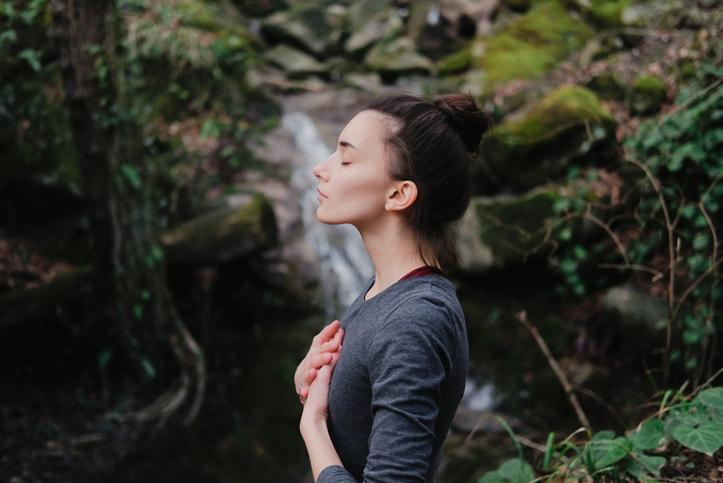
A novel intervention for stress which combines mindfulness with hypnotherapy has shown positive results in a Baylor University pilot study led by Psychology and Neuroscience Professor Gary Elkins.
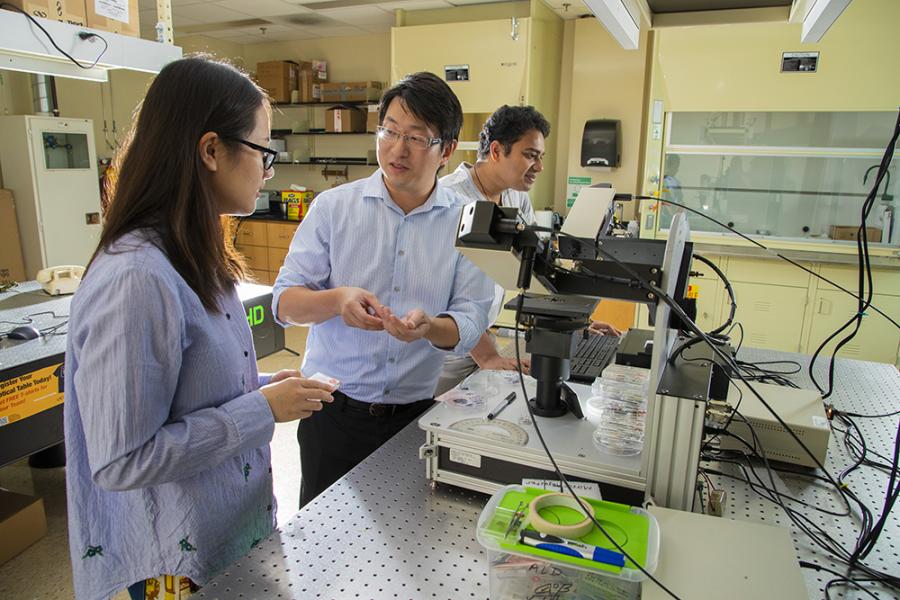
Howard Lee, an NSF CAREER Grant winner, advances materials science understanding through his nano-optics research and leads important growth in Baylor research facilities.
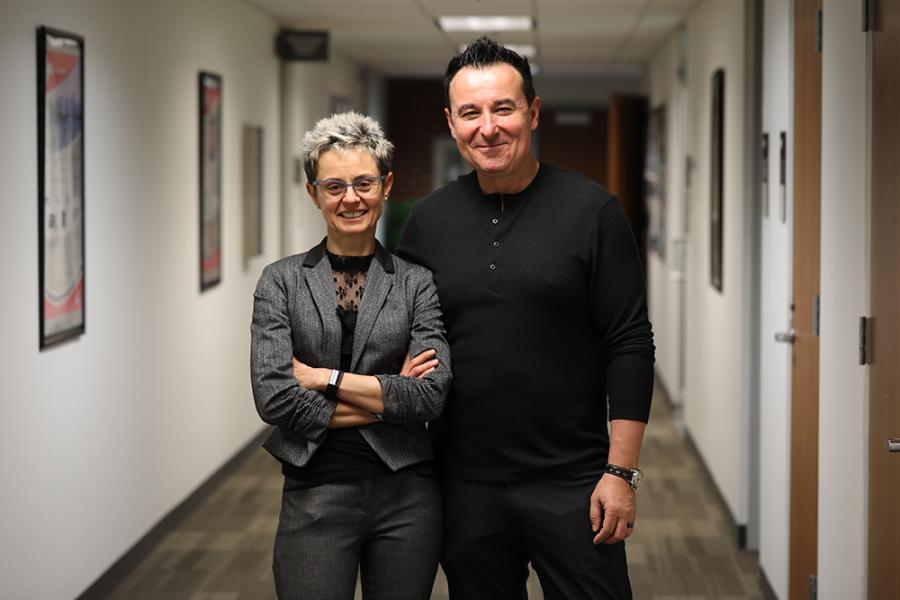
The path to Baylor for mathematics professors Dorina and Marius Mitrea was forged by their immigrant experience and the desire to propel the University closer to R1 status.
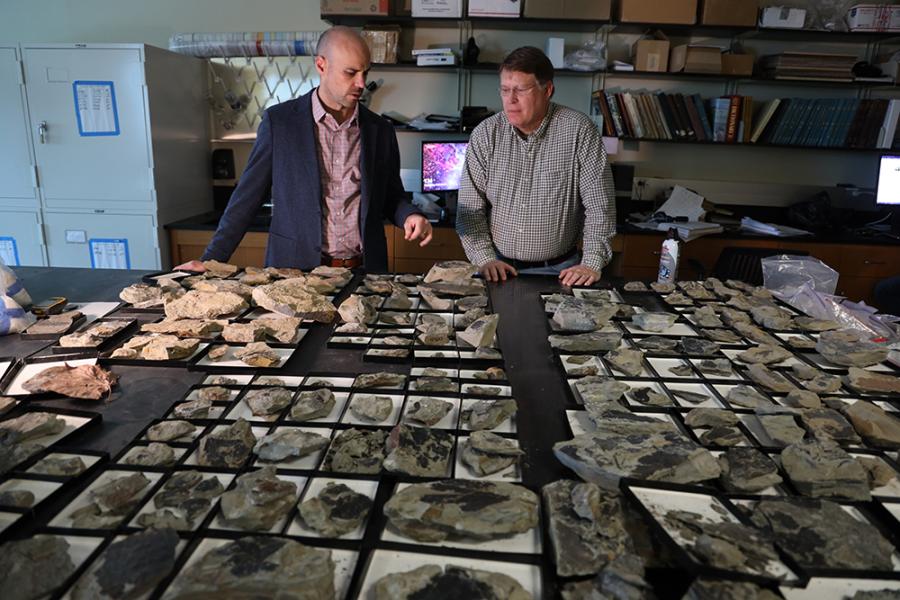
Baylor professors offer warning as climate change has potential to dry world’s largest tropical lake more quickly than anticipated.
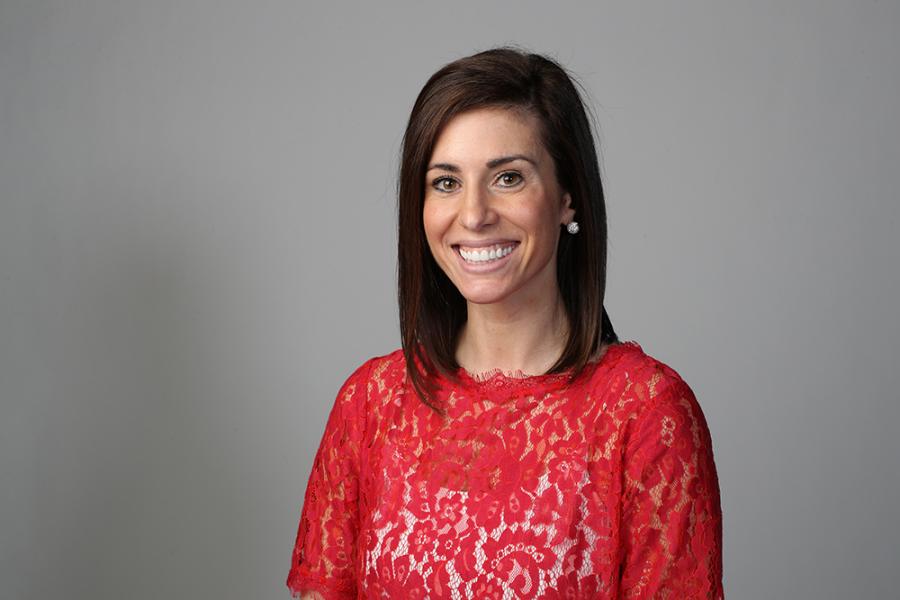
The relationship between customer satisfaction and firm performance is strong--under the right conditions. Ashley Otto, assistant professor of marketing in Baylor's Hankamer School of Business, publishes insights from a quarter-century's worth of meta analysis.
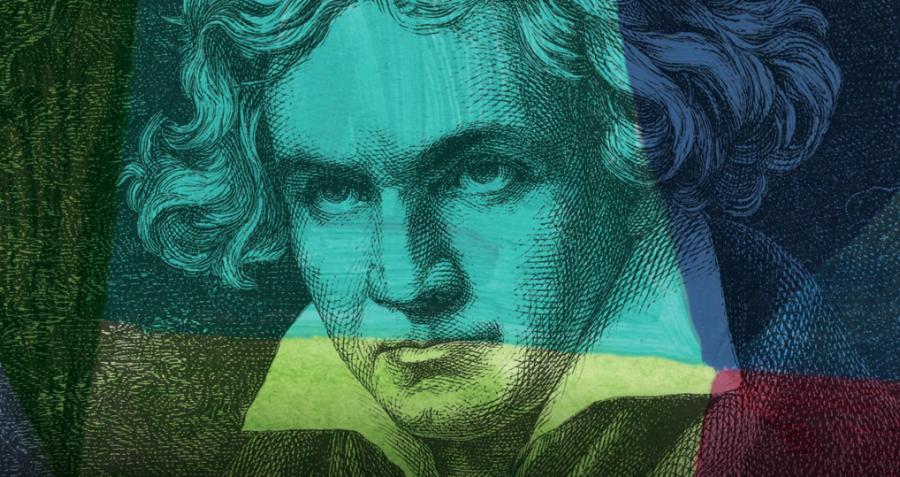
Baylor music professor and internationally-recognized Beethoven scholar Robin Wallace brings unique insight to his research on the composer. Beethoven's deafness has long been studied, but Wallace navigated that study while living with deafness in his family. His book, Hearing Beethoven is a seminal look at the nature of disability, personality and creativity.
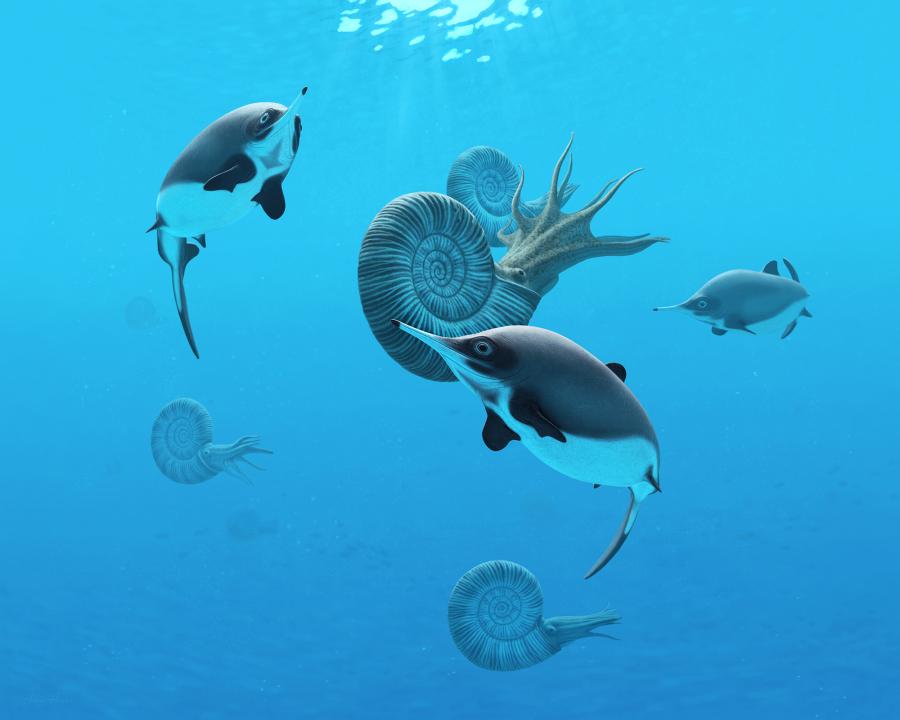
Skeleton high on a London museum wall — mostly ignored for a century — spurs a study finding that the creatures swam in seas from England to Russia to the Arctic, Baylor University researcher says.
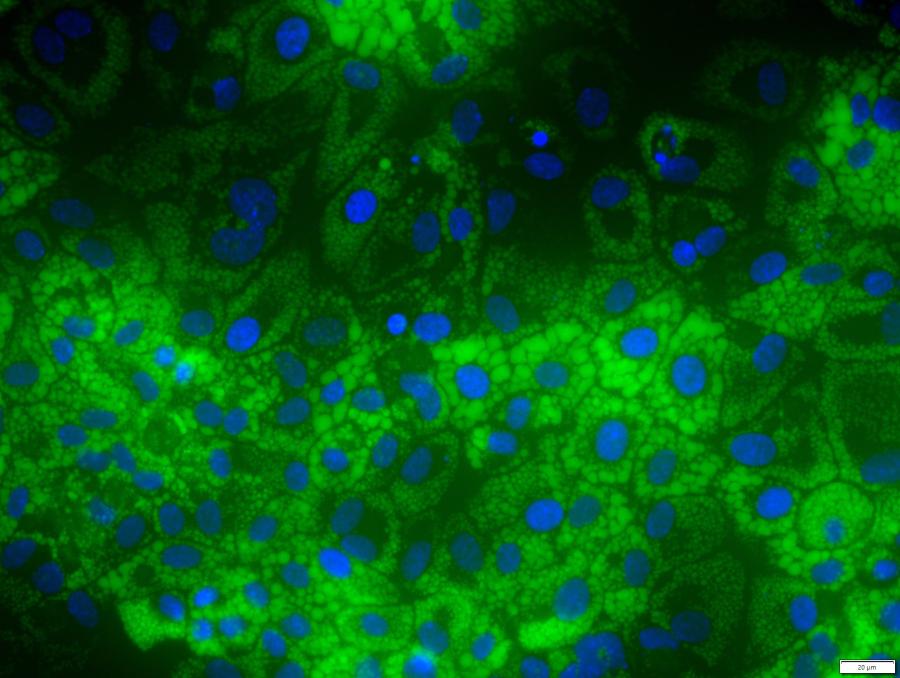
Chemical compounds found in many consumer products could be major contributors to the onset of lipid-related diseases, such as obesity, according to a Baylor University study led by Ramon Lavado, assistant professor of environmental science.
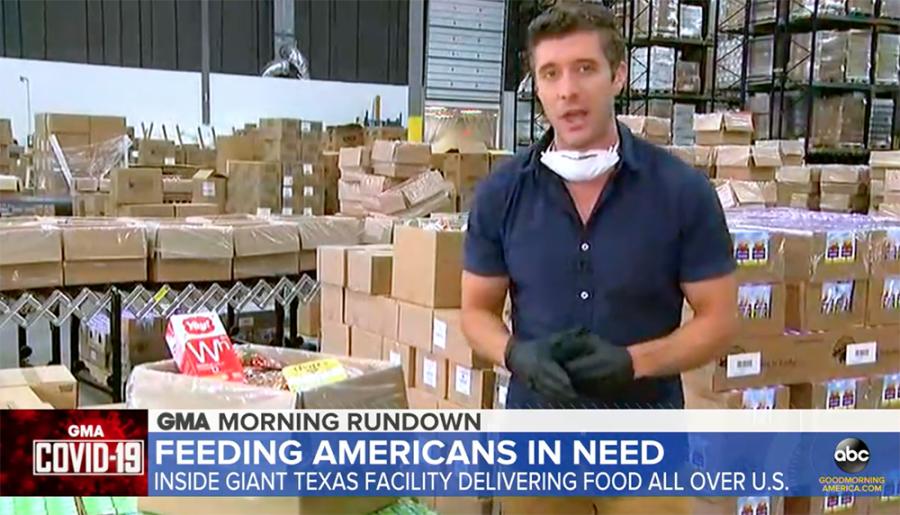
Good Morning, America featured Meals-to-You, a food by mail initiative of the Baylor University Collaborative on Hunger and Poverty, in a live report May 15. Meals-to-You, a partnership with the USDA, McLane Global and PepsiCo, feeds over 5 million meals per week through the mail to rural schoolchildren.
Baylor University exceeded stretch goals in research expenditures and saw substantial growth in research awards over the previous fiscal year, President Linda A. Livingstone, Ph.D., shared in her quarterly report to the Board of Regents. Additionally, two new Ph.D. Programs and a Master's program have been announced.

The Baylor University Collaborative on Hunger and Poverty's Meals-to-You program delivers over five million meals per week through the mail. Meet families benefitting from the initiative on this ABC News Prime Time report, and travel inside the warehouses of McLane Global, a program partner, where food is packaged and delivered.
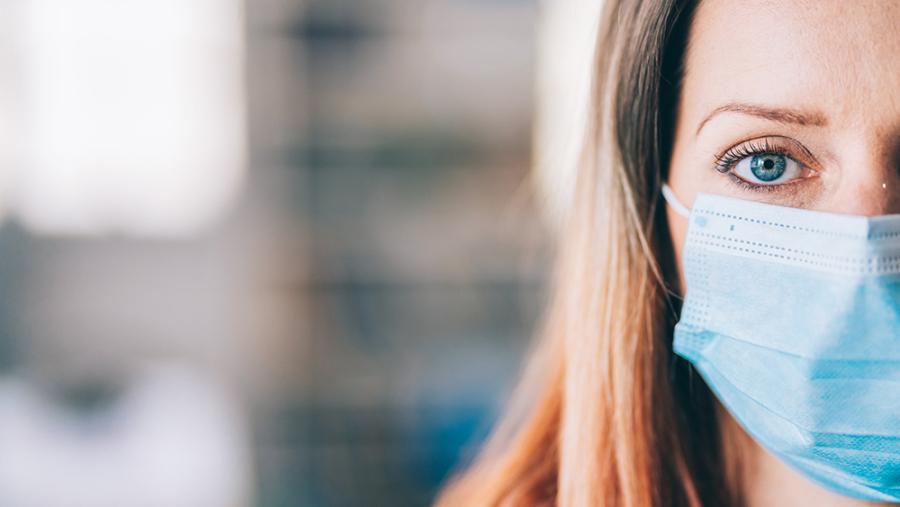
Three Baylor professors contribute to newly formed Virtual Funeral Collective, launching a new website which features an extensive report, guides for laypeople and professionals and dozens of links to resources to honor those who die amidst the pandemic.
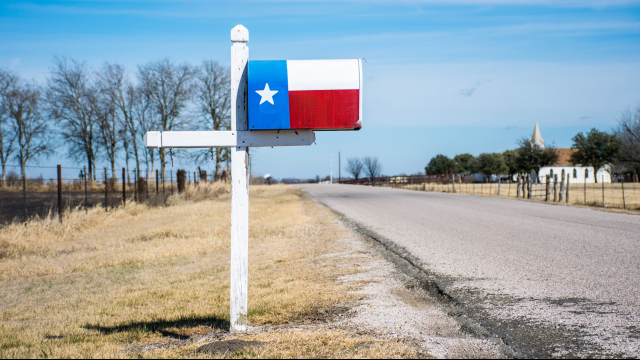
The USDA announced a major expansion of Meals-to-You, an innovative, research-based partnership between the Baylor University Collaborative on Hunger and Poverty, USDA, McLane Global and PepsiCo, to feed low-income kids in rural areas impacted by pandemic-related school closures.

The technological advancements that drive the data sciences are so thoroughly modern that many are unaware of their applications to the study of the past. Learn how Baylor is investing in the Digital Humanities, utilizing technology to accelerate the study of what it means to be human.

Most treatment providers for individuals with alcohol use disorders are well versed in either the 12-Step Alcoholics Anonymous program or in a different treatment such as cognitive behavioral therapy — but the two approaches can mesh well, according to a Baylor University researcher.

NSF-funded study by Baylor sleep researcher Michael Scullin found students who listened to Beethoven during lecture and while they slept performed better on a test on that material in the short term.
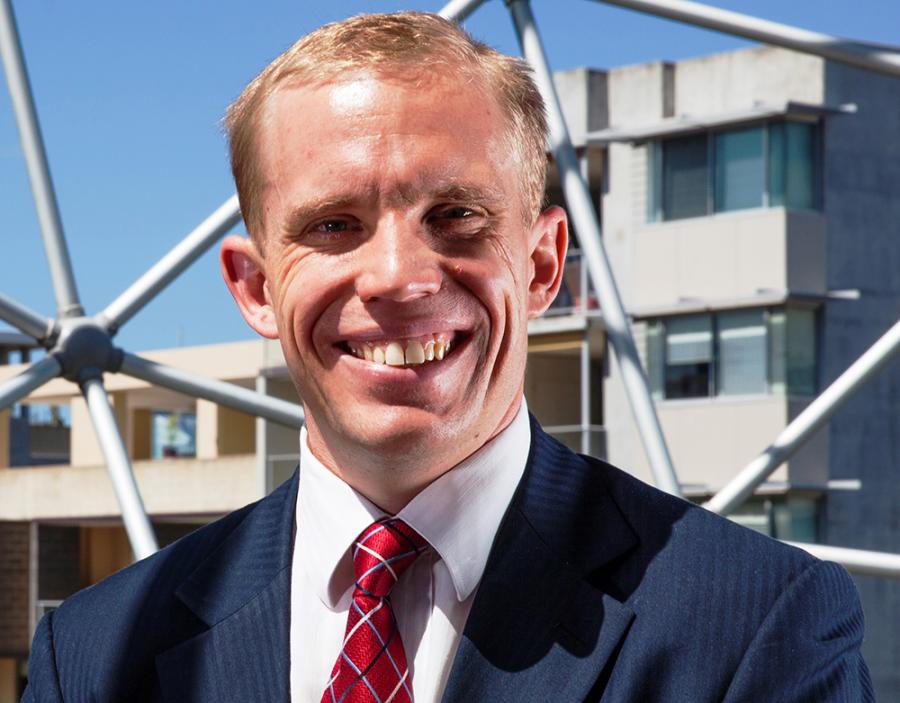
Benjamin Ryan, clinical associate professor of environmental science, to speak at event focused on the need for stronger coordination among disaster managers and health workers during pandemics such as COVID-19.
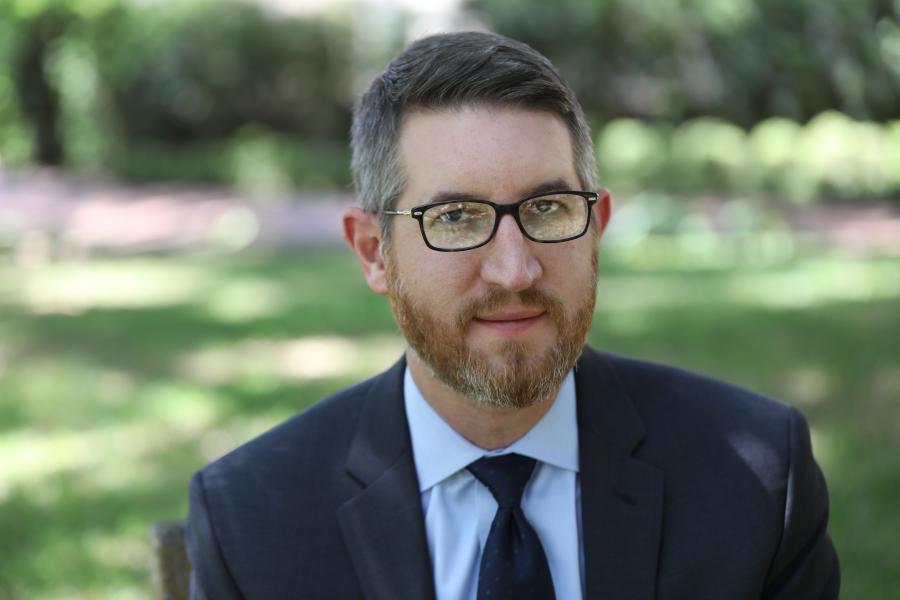
Baylor Collaborative on Hunger and Poverty Founder and Executive Director Jeremy Everett discusses the nationwide expansion of "Meals-to-You," an innovative food by mail program providing meals to rural schoolchildren. With schools closed by COVID-19, a private-public partnership is expanding the program to serve over a million meals per week.
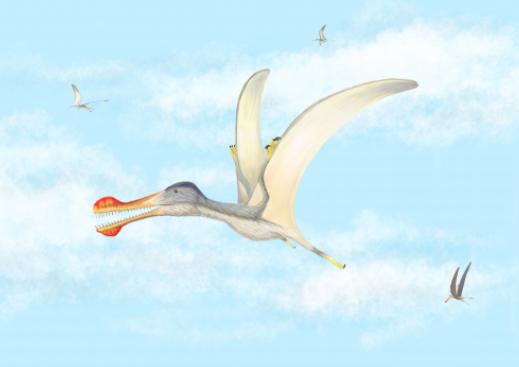
Fish-eating pterosaurs with wingspans of up to 13 feet soared over the Sahara and snatched prey 100 million years ago, Baylor University researcher says.

Political conservatism is the strongest correlation among supporters of the ‘zero-tolerance’ policy that resulted in family separations, Baylor researchers find
Innovative Baylor program will deliver millions of nutritious meals directly to students who attend rural schools closed by COVID-19.